Board Meetings | Worst Advice We Got As Beginners
We were all beginners once. In this, our 176th episode, Nate and I sit down to recount some of the worst pieces of advice we got as beginners, and what advice we wish we'd gotten instead.
Are you a beginner who is looking to improve your climbing? You want to start training, but the advice you regularly hear is “just climb more”? We created our new Just Climb More Routes and Just Climb More Boulders Proven Plans just for you. We know that there is a better way to improve beyond just more mindless climbing, and we want to help you make that jump to the next level.
FULL EPISODE TRANSCRIPT:
Kris Hampton 00:31
What's up everybody? I'm your host Kris Hampton.
Nate Drolet 00:34
And this is Nate Drolet.
Kris Hampton 00:35
And together we form.... definitely going to stump you with this one...Lenny and Squiggy
Nate Drolet 00:45
Uhh.....
Kris Hampton 00:45
Any idea who Lenny and Squiggy are? Have you ever heard those two names in combination?
Nate Drolet 00:49
Oh, I got this. This is an early 90s underground hip hop duo.
Kris Hampton 00:55
Hahahaha....That's....I mean, that's a good guess. That's the norm. But that's not true.
Nate Drolet 01:00
From Odessa, Texas.
Kris Hampton 01:01
Haha. That's also a good guess. Have you ever heard of the show "Laverne and Shirley".
Nate Drolet 01:07
Yes.
Kris Hampton 01:08
They were characters on "Laverne and Shirley". They were these two like greaser dudes who were...... not very .....intelligent is the wrong word, because they could have been really smart. I don't know. They just didn't show it.
Kris Hampton 01:27
They're greaser smart, but maybe just not like "Laverne and Shirley" smart.
Kris Hampton 01:33
It didn't even show that they were greaser smart. And they're the duo today because they were basically beginners at life, in general.
Nate Drolet 01:42
Okay.
Kris Hampton 01:43
And today we're talking about beginners, the worst advice we got as beginners, because we were all beginners at one time. And in a lot of ways still are.
Nate Drolet 01:52
Yeah.
Kris Hampton 01:54
Did you have to think very hard about bad advice you got as a beginner?
Nate Drolet 01:59
Yeah. It took me a while, like a big thing. I mean, because so much advice we get we internalize. And so many of these things I didn't even.... it took me a long time to recognize "Oh, that's right. Someone told me I should do this and this informed that." And initially, I was like, "Oh, yeah, I've got a few like, main ones that really jumped out", and then more kind of trickled in over the next few days of thinking on it. And I'm sure there are plenty now that are just so kind of implicitly a part of my climbing that I don't recognize that they're happening yet.
Kris Hampton 02:34
Mm hmm. Yeah, I at first, I couldn't come up with many. And I think I just blocked those fuckers out of my head. Like,
Nate Drolet 02:43
That's good.
Kris Hampton 02:44
Once I started remembering them, I was like, "Oh, what a dick that guy was!" And then I started coming up with more and more and more. But I'm sure that a lot of beginners out there getting horrible advice from a lot of people. Yes, you are giving beginners bad advice.
Nate Drolet 03:04
It may be well intentioned
Kris Hampton 03:06
Yeah, totally. But it just isn't....it isn't advice that sets them up for success down the road. You know? So we're gonna dig in. We're gonna kind of go back to old school methods here and each have our own that we haven't discussed beforehand.
Nate Drolet 03:25
Yeah, we haven't done this in a while.
Kris Hampton 03:27
Which means you're probably going to take two of mine which leaves me with one
Nate Drolet 03:30
So I'll go first
Kris Hampton 03:31
Which always sucks. So yeah, what's your what's your first piece of bad advice you got as a beginner?
Nate Drolet 03:37
So this would have been 2005. And it was don't train because Chris Sharma and Dave Graham don't train.
Nate Drolet 03:44
Goddamn it. See I told you you were going to take mine
Nate Drolet 03:46
They are the best in the world. Yeah, that was it's funny too, because before them, I mean, you know, a full generation before them, you had guys like Moffatt, Moon, Malcolm Smith. Like,
Kris Hampton 03:59
Why all Brits?
Nate Drolet 04:01
Because they were the best
Kris Hampton 04:03
Haha. Totally.
Nate Drolet 04:03
Man.
Kris Hampton 04:04
There was Bachar too. Bachar trained.
Nate Drolet 04:06
Bachar, Wolfgang Gullich and you had some other strong guys, but man, they like those guys trained. Like Malcolm Smith, like one of the strongest climbers. Ben Moon still says that Malcolm in his prime was probably the strongest climber he's ever seen to date. Malcolm lifted a lot of weights. He trained really hard. He was very diligent. And yeah, like this was back in late 80s, early 90s. These were the guys that pushed the sport from, especially like Moon and Moffatt from you know, like 12c up to 14d, more or less. And they trained hard. But
Kris Hampton 04:43
I'll take that a step further, actually, because in the 90s, I got the same advice. Mid 90s . Even though Moon, Moffatt, Malcolm Smith, Tony Yaniro, John Bachar, all these people were famous for training. But a lot of the dudes the gym were like, "Oh, you shouldn't train. That's not cool."
Nate Drolet 05:07
Yeah, yeah, it's in. That's even more strange. Because I guess it made some sense in my time because Sharma and Dave Graham both didn't train, at least like it didn't appear that they did. And so people were like, "Oh, they're good. You know, you can get good too", which completely goes against the whole survivorship bias kind of thing. But yeah, that was the first advice I got. And it's, that's something I'm still very much like, against. Like, it doesn't take much training, and even to call it training, like push ups, pull ups, just some simple stuff. Like man I wish I would have found kettlebells, like earlier on, just to become a little more robust. Kind of making myself a little more resilient against injuries down the road, that would have been huge.
Kris Hampton 05:59
Yeah. And a lot of training, especially what we do, just looks like really intentional climbing. You know, and one of one of my most popular articles that I've written for the site, which I wrote a long time ago, was "Chris Sharma Doesn't Train...Or Does He?"
Nate Drolet 06:17
Yeah.
Kris Hampton 06:17
And essentially breaking down Chris's, like, seasonal process, and saying, "Oh, here's why it looks exactly like the way that we would train."
Nate Drolet 06:27
Yeah
Kris Hampton 06:28
You know, he goes in with a really specific intention. Not to mention, there's a reason that you can really only name a couple of those people and the same names always come up, you know, "Well Chris Sharma aand Dave Graham don't train." Okay, who else? There's a reason there's two, you know, because they're exceptional. They are the exception. Most people do in some way, shape or form, view what they're doing as training, whether they would use that word or not.
Nate Drolet 07:00
Yeah, you know, and it's...there a lot of.... if we're even just looking at high end climbers, there are a lot of high end climbers who do train but until recently, the last few years, like if you've only been climbing, let's say three years, you would say "Man training is huge. It is popular." Like you look on Instagram, everyone's doing one arm pull ups on the Beastmakers, things like that. Hanging tiny little edges, Moon Boarding, all this. But even five, five years ago, man, it was not cool for a pro to like talk about training.
Kris Hampton 07:32
Yeah.
Nate Drolet 07:33
And some of them still carry that same...almost like stigma around to where they don't post about training, but they definitely do.
Kris Hampton 07:42
Yeah, they totally do things outside of their climbing to improve their climbing, just don't want to talk about it. And you know, back in the day, even on the biggest videos of the day, there was Fred Nicol e doing pinky one arms hanging from hanging from a sling. You know, there was John Bachar on his Bachar Ladder. I mean, training tools had names. You know, they invented training tools specifically for climbing.
Nate Drolet 08:10
Yeah, you know, Todd Skinner doing a lot of those, like one finger work, stuff like that.
Kris Hampton 08:15
Yeah, yeah. Todd had his... I can't remember what he called it. It wasn't the Pain Box. It was something else. Bill Ramsay has the Pain Box. Todd had..... Todd had a box that he had put all these miserable little crimps on. And you would essentially just move around, underneath of this suspended box, you know, grabbing miserable little holds and compressing between them or, you know, using compressing between your foot and your hands and early early training tools.
Nate Drolet 08:51
Yeah. Yeah, so that's my first one is "Don't train, just climb." And, you know, what do you think is the intention for people behind this? Like, because they're.... I think people still give this advice, with good intention.
Kris Hampton 09:08
Yeah.
Nate Drolet 09:09
So what do you think that stems from?
Kris Hampton 09:12
I mean, I do think "Climb more." is good advice. I think "Just climb more." is bad advice.
Nate Drolet 09:21
Yes
Kris Hampton 09:22
I think what people mean is "Climb more." and and that says that you can go in with an intention. You can go in with something specific that you're going to work on and want to do. Whereas "Just climb more." means or has this connotation of "Oh just go to the gym, climb whatever, do whatever. You're you're going to automatically get better ,like magic."
Nate Drolet 09:47
Yeah.
Kris Hampton 09:48
And and you know, we just to go off on a slight tangent here, we have our new Proven Plans, the two "Just Climb More" series, which are kind of a tongue in cheek jab at all those people saying, "Oh, just climb more. Just climb more. You don't need to train." And these are proven plans specifically for beginners, or relatively new climbers who want to learn how to improve faster. And a lot of it is just really intentional, specific climbing. And I think that's what people mean and I think it's good advice. But I think it goes bad when they discount it, as if it's not a real thing. You're not actually training.
Nate Drolet 10:33
Yeah. Yeah, it's a, there's so much behind "climbing more". And it's having that intention is important. Like, you know, I was talking with someone, he played golf at a semi professional level, got into climbing and to him, just climbing what he would maybe refer to as like, "Oh, I just climb a bunch"
Kris Hampton 10:56
Right
Nate Drolet 10:56
He has so much intention. He has all these different things he draws from from another sport, where he knows what good practice looks like. So to him, he might say, "Oh, yeah, I'm just climbing with general fundamentals." But his general fundamentals are so much higher than someone who doesn't have that level of expertise in another sport. So if he were to say to someone else, like, "Oh, yeah, just like I just climbed. Go climb, like, just climb." They won't have everything else built in.
Kris Hampton 11:27
Right, exactly. And you, you know, yes, Chris Sharma and Dave Graham didn't do a lot of what we conventionally call training, but they also never went into a climbing session, just like scattered and willy nilly. You know, both of those guys are ridiculously focused, and try very hard and work through problems in a really specific way. You know, so that's what the Just Climb More Proven Plans tries to teach, as well as, let's build up a base for training later.
Nate Drolet 11:30
Yeah.
Kris Hampton 11:36
So. And I think that's the smart way to go about it.
Nate Drolet 12:09
I think so too.
Kris Hampton 12:12
All right, my first one. I'm gonna, I'm gonna go with an easy one here. Wear the tightest shoes you can get on your feet.
Nate Drolet 12:22
Oh, I've got that one on here, too.
Kris Hampton 12:23
That...and that may have been a little more true in the mid 90s, when shoe technology was not what it is today.
Nate Drolet 12:34
Yeah.
Kris Hampton 12:34
But even then.... my first real pair of climbing shoes were Boreal Lasers
Nate Drolet 12:40
Sick.
Kris Hampton 12:41
I currently wear a size nine. They were five and a half's
Nate Drolet 12:46
God
Kris Hampton 12:47
And I could get them on my feet. It was a struggle. But I could get them on. And that was the advice I got. If you can get the shoes on your feet, then they fit you.
Nate Drolet 12:57
Yep.
Kris Hampton 12:59
And, and it was miserable. Climbing indoors, like on short boulders, was okay. Going outside to the Red and trying to climb a 90 foot pitch in shoes that that a ballerina wouldn't put on was fucking miserable. And I hated it. So if the advice you're giving is just gonna make someone dislike rock climbing, it's probably really bad advice.
Nate Drolet 13:25
Yeah, I mean, I completely agree with this one. Like I was told the same thing. And shoe technology has come a long way. Like there are..... shoes are now, certain companies especially, have been designing shoes that you can wear them a little bit bigger, more comfortable, and they're still going to perform very well. Which is awesome, because man tight shoes suck. Like, if you like if you can't jog around in your shoes, they're probably too tight. Like if you're wearing shoes that are
Kris Hampton 13:52
Ooh...a lot of people are going to push back against that statement.
Nate Drolet 13:55
Yeah, and I mean, that's, that's fine. Like they probably climb clunky.
Kris Hampton 13:59
Yeah
Nate Drolet 13:59
They may like.... they walk around like they've got cloven hooves on. Like, if you can't be comfortable, you're not going to climb comfortably. Yeah, I mean, it's kind of that simple. And you look at people now like it, I definitely came up in an era of "Wear tight shoes" and I've been slowly going up in size. And it's hard for me, because my feet are strong in areally bunched up position. But the second they get more flat, they're not that strong.
Kris Hampton 14:25
Right
Nate Drolet 14:26
But I see people now who they never downsized, so they're climbing hard but in big flat shoes, and their feet are strong in that flatter position. And I'm like, "Man that's nice. You wear comfy shoes than me and you're like just as competent on small feet as I am. Sucks to be me." Haha
Kris Hampton 14:42
Haha. Yeah, and I you know I'm all for technology that improves whatever skill it is you do you know. And shoes that work better improve your climbing. But if we watch somebody who's really, who's a master with their feet...Angie Payne comes to mind, the way she grabs footholds with her feet, that has nothing to do with how tight her shoes are. Zero. She's just mastered using her feet. So I think the tight shoes, like get put on the tightest shoes you could possibly put on was this weird crutch that almost allowed people to not work on their footwork, because they've got really tight shoes and they must work.
Nate Drolet 15:35
Yeah, and for small footholds, like that kind of was an easy crutch initially. Like just, you know, if your feet are so crammed up that they can't move, like, it's just like having a little hooks for feet that you can put on holds.
Kris Hampton 15:47
Yeah.
Nate Drolet 15:49
And another thing too, is if you're like, if you're a beginner, something I would really recommend, if a lot of gyms now offer, if you have a membership, it comes with free rentals. Man, when you first start, wear rental shoes kind of as long as you can. Like, if you can get away with it for you know, a couple months, like the difference between if you want to buy your own shoes at two weeks into climbing versus two months into climbing, like your, your comfort that your feet can handle, it's gonna be completely different. Kind of how you feel about everything's gonna be different. And you're gonna find something that's gonna fit you and work a little bit better. So that's what I'd recommend. And yeah, start comfortable.
Kris Hampton 16:30
Yeah, a lot of you know, you look back in history, there were a lot of guys, a lot of women, a lot of people that climbed very hard in like Boreal Aces, which were essentially like strapping two by fours to your feet, because because that's what people thought trad climbers needed back then. And, and they still climbed really, really hard. So it's far less about the shoes, far more about how you use them. And just to another kind of side tangent about shoes, something I'm learning about shoes now and about wearing shoes that are a little bigger instead of tight, is if I'm wearing a tighter pair of shoes, even if it's like...... the the size that I like, which is pretty comfortable. If it bunches up the knuckle of my toe, all of a sudden that almost deletes one of my superpowers, which is toe hooking. Because the knuckle of the toe pointed up, takes the toe hook first and doesn't allow me to get the you know, the whole top of my foot on the toe hook. So tight shoes can be a hindrance in some cases.
Nate Drolet 17:46
Totally. Yeah. And you know, when people are designing shoes, they're designing them to fit a certain way and to be sized a certain way. So I'll see people try shoes on and I'm kind of like a shoe, like, a shoe nerd. For sure, I'm like,
Kris Hampton 18:01
You're way more than kind of a shoe nerd.
Nate Drolet 18:02
Yeah, I love climbing shoes. I got to talk with Nathan Hoette, one of the head designers of Scarpa. And like we just geeked out for hours about how everything's made. And that was a big thing he talked about. He's like, "Man like, we make the shoes to be fitted a certain way." And you can see people when they try and size them too tight, they're like 'Oh the heel doesn't fit.' and like, you know, maybe 'The toe doesn't feel good.' or like 'There's gap under my arch', stuff like that. And you look, it's like, if you want to full size up, that heel would work better, you're going to toe hook better, like that shoe is just going to fit your foot better. You're just trying to force something, because that's what you think is supposed to work. So yeah, try different, try different sizes. Go up, go down, see what fits well, and try as many models as you can. And a little side note, if you're trying on models in a brick and mortar store, buy from that store.
Kris Hampton 18:57
Yeah
Nate Drolet 18:58
Yeah, I mean, they're offering like, the fact that they are stocking everything you're getting to try them on...like I know, you can maybe save like five, ten bucks or whatever on the internet. Buy from the store, you know, support local.
Kris Hampton 19:08
Yep, totally. All for that. What's your number two?
Nate Drolet 19:13
All right. Um, so this one, this one has detail and depth in it. It has all things. Trying to send the hardest grade possible. Like and it this was more of a kind of just what the culture was around. Like, "Okay, you've done V5? Go try and do V6. Now you've done a V6, go try and do a V7."
Kris Hampton 19:35
Yeah.
Nate Drolet 19:36
And this was also in this weird era of people are like, "But don't be a number chaser."
Kris Hampton 19:42
Right.
Nate Drolet 19:42
Don't chase grades
Kris Hampton 19:43
Haha. Right, right. "But to progress, go to the next number."
Nate Drolet 19:47
Exactly. Yeah. And I came from a track and field background. We were literally number chasers.
Kris Hampton 19:53
For sure. Like, literally.
Nate Drolet 19:54
If you were to go tell someone like Usain Bolt, "Hey, man, it seems like you're really chasing some numbers. Like you need to go back and find the heart of the sport."
Nate Drolet 20:03
You'd just look like...he'd look at you like you're an idiot. It's like no, like, this is the heart of the sport, like chasing numbers. And so I'm not saying that progression is bad or progression based on numbers is bad. But progression comes from do like, becoming better and becoming better. Like I wish someone would have said, "Hey, like you're climbing V3. Go climb all the V3 is now."
Kris Hampton 20:03
RIght
Kris Hampton 20:28
Yeah
Nate Drolet 20:29
"Oh, you just climbed a V4, go climb all of the V4s now."
Kris Hampton 20:32
Yep.
Nate Drolet 20:32
Because man that like, if you want to chase numbers, that's a damn good way to do it. Like, that's what I wish I would have done is kept building more of a base. And it took me years to realize this. I just built this little tower of very specific styles. Because, you know, especially when you start chasing them, you can kind of escalate through the grades, if you pick a narrow niche.
Kris Hampton 20:55
Oh, yeah, totally.
Nate Drolet 20:56
But then you leave so much behind. Like, I, you know, jumped like four steps forward. And then I had to take what felt like 10 steps back just to rebuild my base years later.
Kris Hampton 21:09
Yeah, there's definitely a lot of value in progressing wide or deep, instead of just high. You know, and I write about this in one of the essays in "The Hard Truth", because that was the advice I used to give. You know, if if somebody came up to me, and I'd seen them number chasing in the gym, my advice was always, "Stop trying the hard things". You know, "How do I climb harder?", stop trying the hard things. And, and people would just look at me, like I was an idiot. And I had a policy of, if they don't take advice the first time, don't give them advice the second time. And the few people that did rocketed through the grades eventually, you know. But they would, they would come in, and like you said they would climb every V3, you know, and then they would climb every V4. And eventually, it's slower to get to V5 or V6 that way. But by the time they got there, they could do half the V5s, whereas the the friends that they were initially climbing with were working on the one V5 that they might be able to do, you know. So I think it's a really valuable way to progress.
Nate Drolet 22:18
Yeah, I agree. You know, it's a one thing you have to watch out for now, is routesetting turnover is much higher. And when I started like back then it was, you know, the whole gym got reset probably like once every four months.
Kris Hampton 22:32
Yeah.
Nate Drolet 22:33
Which in hindsight, now, I'm like, "Ah, that was sick."
Kris Hampton 22:35
I know.
Nate Drolet 22:36
Where now big gyms it's like once every four weeks practically. So you can get stuck in a pattern of, "Oh I'm going to try and climb all the V4s". But because everything's turning over so fast, maybe you need to be on something that's a little bit harder, like, "Oh, I'm going to try and do all the V5s and I just have to know that I won't be able to get them all done, because they're going to turn over too fast."
Nate Drolet 22:58
And that's a hard balance to strike. Because, man, shiny new boulders, they're fun. So I think that can be a little harder now than it used to be.
Kris Hampton 22:58
Yep.
Kris Hampton 23:10
For sure.
Nate Drolet 23:11
Just because it's so easy to lose the quality and go purely quantity. But I think there's still there's still a lot of truth in that.
Kris Hampton 23:20
Yeah. And we put a lot of value in topping out boulders.
Nate Drolet 23:24
Yeah
Kris Hampton 23:24
And projecting isn't doesn't often end in topping out boulders, you know, so it's easy to never project and you know, I'm gonna keep.... this is a business, so I'm going to keep hammering away at the idea that if you're a beginner, you should buy our Just Climb More Proven Plans because they do, you know, give you days of both. So one day, we're gonna go in and focus on climbing a lot of a grade, a specific grade, that's moderately difficult for you. And then other days, we're gonna come in and specifically work on things that are really hard for you, you know, that you may not send. And I think it's really valuable to have both methods in there. And oftentimes, beginners, because of bad advice, they've gotten focused on one or the other at the expense of the other.
Nate Drolet 24:17
Absolutely. Yeah. I agree. Like it's, I think both are important and leaning only towards one is definitely a you know, gonna put you on the road to a cul-de-sac.
Kris Hampton 24:28
Yeah. All right. Alright, my number two is one we've, we've talked about before, and this is the myriad of movement myths.
Kris Hampton 24:40
Things like keep your arms straight, get your hips in. You know, those were just thrown around at the gym when I was young. And, and to be fair, it was the like really prevalent style of the day. The French climbers were crushing everyone else and they were very twisty, you know,
Nate Drolet 24:41
Yep yep
Nate Drolet 24:44
Didn't cut feet
Kris Hampton 24:47
Always three points of contact, you know. And that's what everyone thought was the way forward. So that's what they tried to tell everybody to do. And, and it's good advice, but it's only a small sliver of how you can climb. You know, there are so many other things to consider when you're moving. And it's not always going to be best to keep your arm straight. In fact, it's pretty damn hard to climb upward keeping your arm straight all the time.
Nate Drolet 25:41
Yeah.
Kris Hampton 25:42
And twisting your hips in, you know, a lot of times being squares the better way and being further from the wall can be better on a lot of moves instead of trying to glue your hips to the wall. You know, there were just all these movement absolutes that don't really work.
Nate Drolet 26:01
Yeah, no, I I have one of these. It's kind of one of my extras....that for me, that was huge. People told me initially, "Static is better. Controled is better." And if I wanted to be strong, I needed to climb square.
Kris Hampton 26:16
Mmm Hmm. You were in that era.
Nate Drolet 26:19
Yeah.
Kris Hampton 26:19
Interesting.
Nate Drolet 26:20
I used to twist a lot. And people like "No, no, if you want to get strong you have to climb square because twisting makes you weak."
Kris Hampton 26:26
Yep. That was in the era where like, boards had started to come into fashion. And there were rules on boards, like you don't twist, you don't heel hook, you know, you always climb square.
Nate Drolet 26:41
Yeah, I remember there were old like pro tip videos with Malcolm Smith and Ben Moon. Ben was like, "Lock off everything. Here's how you do hover drills" and Malcolm was like, "Yeah, twisting, twisting makes things easy. So you're gonna want to climb square." And I was like, "Yeah!". Granted, both these guys grew up on like, hard, technical limestone. Like, they knew how to twist. They knew how to use momentum.
Kris Hampton 27:02
Yeah, exactly.
Nate Drolet 27:03
Like these were great rock climbers. So for them, yeah, let's make up a few little rules. That would be like me saying, "I'm pretty good when I use my thumbs. So maybe once a week, I'm gonna climb without thumbs, because that's gonna force me into some new unique positions".
Kris Hampton 27:17
Right
Nate Drolet 27:18
Everyone else? Don't stop using thumbs
Kris Hampton 27:21
Right
Nate Drolet 27:23
And man, I got really good at climbing square and locking off. And that's still like, I haven't done that...in at this point, well over a decade, still an absolute strength and twisting is still harder for me. And using.... I had to teach myself how to use momentum way down the road, because I was like, "Oh, I just got to get stronger at locking off." Which is awful, awful advice.
Kris Hampton 27:49
Yep. And side note, you know, I used to be a super twisty climber. It's how I came up. It's what they told me to do. It's what I did. And when I started, like really digging into training, I went the opposite route. Because I recognized, "Oh, I always twist. That's my default. I want to learn to climb square." And I started climbing more and more square. I took that and ran with it probably for far too long and now I've lost a lot of the mobility when twisting, and I've lost the ability to see the twisty moves as readily as I used to.
Nate Drolet 28:31
Totally.
Kris Hampton 28:32
So it's something I have to go back to you know and relearn "Oh, here situations where being twisty might be better than staying square." So that I mean, I hate cliches, but use it or lose it is real. You know, I stopped using being twisty and forgot how to do it, essentially.
Nate Drolet 28:53
Yeah, I mean, it's so true in climbing where you have all these unique skills that, you know, I mean, it happens to me all the time. I'll, I'll be climbing and then I'll start looking around like, "Oh, like, I guess I could use a high foot here. And then, like, oh, I can use a high foot there." And suddenly I'm relearning like this whole process I did five years ago, where it's like, I was like, "Oh I don't use my feet enough."
Kris Hampton 29:14
Right.
Nate Drolet 29:14
But you know, if you stop using them, like, yeah, you stopped seeing them.
Kris Hampton 29:18
Mm hmm.
Nate Drolet 29:19
So if people are out here trying to give blanket advice, straighten your arms twist, things like that. Always be breathing, like all these things. We both agree that's bad advice, like giving these absolutes. What would the better advice be?
Kris Hampton 29:38
For me it's going to be there's no right way, so experiment, find what works for you. And once you find what works for you, try it some other ways. You know if especially if you're in the gym, that's, that's a learning house for you. That's what it's for. Go in there, learn all the ways, learn all the things, you know. And then when you perform, whether that's in the gym or outside, you know, have a performance day where you're trying to do things the easiest way possible. But, but when you're learning, and it's a learning day for you, a practice day for you, find the way that works for you, whatever that is, no matter how ridiculous it seems to the super experienced bro who's telling you how to do it. Find your way, do it that way, then try it the bro's way. Try it. Try it all the different ways you can think of and learn how to do all the things.
Nate Drolet 30:41
Yeah, no, I think that's good advice. One thing I would add is, if you're trying to, let's say you see someone just flailing and you're like, "God, they're just using their arms too much. They don't have any weight on their feet.", instead of going up and saying, "Hey, straighten your arms and twist", instead, like, you know, have a conversation with them. Like, instead of giving these hard and fast rules, say like, "Oh, like, where do you feel that when you're climbing?" and they'll be like, "Oh, my biceps are blowing up!". And it's like, "Yeah, good pump, bro."
Kris Hampton 31:14
Right
Nate Drolet 31:15
But then be like, "Okay, so is there a way you can just relax your arms a little bit more? Like, maybe use your legs more?". And they'll be like, "Oh, I'll try that." And the thing is, a lot of times, they'll naturally go towards straightening their arms. You didn't have to say, "Straighten your arms to climb harder."
Kris Hampton 31:31
Right
Nate Drolet 31:31
You just said, "Hey, like, if you're tiring out, because your arms are doing too much, can we use other parts of our body?" And then they'll get to that same conclusion. They'll get to the same endpoint, which is maybe straighter arms on this boulder. But what they learned is something completely different. They didn't learn a single rule to apply to everything. They learned, "Oh, like, I have this new framework I need to see things through."
Kris Hampton 31:58
Yeah, and I'll say, you know, if you go into that situation with someone who's a beginner, and you're essentially coaching them through something, assuming they want that advice, you know, assuming they're open to that, don't fall into the trap of thinking they have to learn all the lessons today. You know, if you're, if you're talking to them, leading them into these answers, and they aren't quite getting it yet, that's fine. You know, let them let them learn it another day. They're going to keep those lessons in their head. They're going to keep the things they that you said in their head. And when they come in for the next session, they're going to think through those things again. So it's totally okay, if you just say, "Cool, keep working on it, and walk away."
Nate Drolet 32:44
Totally. Like, you know, we say this all the time in our workshops, like, "This isn't like a 30 minute sitcom, like, everything doesn't have to be wrapped up perfectly by the end of the show."
Kris Hampton 32:55
Right
Nate Drolet 32:56
There are going to be plenty of boulders, like a lot of lessons that just don't get learned...maybe not in the first year. But I've had so many times where I'll be climbing and suddenly it'll click. I'm like, "Oh, this is what like Brian was telling me four years ago, when he was saying, 'Pulling out on holds, not down on hold' or something like that." Like, it finally clicks. I would.... like it was amazing advice back then. I was just not ready for it.
Kris Hampton 33:20
Yep.
Nate Drolet 33:20
And that's okay.
Kris Hampton 33:21
Yeah, it's really easy to want to give someone all the good advice you have. But maybe they just aren't ready to receive parts of it. You know, and when they are, they will.
Nate Drolet 33:32
Yeah. One other thing on giving advice, less is more. Like if you're cueing someone, and this comes from like this is if it's climbing, strength and conditioning, whatever. The more cues you give someone, the worse they're going to do.
Kris Hampton 33:47
Yeah
Nate Drolet 33:48
For some people, it's just.... if they're trying to do..... if a beginner is trying to do a big move, you might just say, "Hey, just try and get your body higher." Like that is going to do so much more than saying like, "Okay, flex your calf, toe in, pull out on the foothold. Now you're gonna want to squeeze your glute, lift your hip", because suddenly they're not even gonna be able to pull onto the wall anymore.
Kris Hampton 34:07
Yeah
Nate Drolet 34:07
Because they are focusing on so many things. Just simple
Kris Hampton 34:10
It is gonna feel like chaos to them.
Nate Drolet 34:12
Yeah. Yeah. So you know, like, talk through, like, just have simple conversations and keep it, you know, keep it simple.
Kris Hampton 34:20
Yep, agreed. Wanna take a break and come back with number three?
Nate Drolet 34:24
Sounds good.
Kris Hampton 34:24
Alright. What's up everybody, Kris here. I'll keep this short and sweet. I just wanted to let you guys know about our new updated Proven Plans that are now available on the website. These are the patterns that we've seen emerge after years and years of training hundreds of climbers, the patterns that at a specific level, help those climbers reach the next level. And this includes our two newest Proven Plans, Just Climb More Boulders and Just Climb More Routes, written specifically for the new or novice climber. Why "Just Climb More"? Because frankly we feel like the advice that most new climbers get, "Just climb more!" is a lazy cop out answer. While you will be climbing more, you won't just be climbing more. Instead, you'll be climbing more focused, more intentional, and you'll be learning a more efficient way to progress. We've updated those with weekly progressions, all of the most recent ideas and concepts that have been proven to work in training for climbing, as well as new videos for every exercise and every drill that you'll do. This is all laid out for you, week to week delivered in our mobile app. And you can choose to work with a coach. We've just hired a new coach to work specifically with everybody in these Proven Plans. And you can also join a group chat that's filled with other people also doing Proven Plans at the same time as you. Honestly, I don't think there's a better value in training for climbing. You can check these out at powercompanyclimbing.com, click on the Train With Us tab.
Kris Hampton 36:01
Alright, back to the show. All right, we have returned. Worst advice we got as beginners....I still get some of this advice today, actually.
Nate Drolet 36:12
Really?
Kris Hampton 36:12
You know, if I'm if I'm in the gym, and there's, there's a bro there wanting to want to tell me how to do something, I still get the same ridiculous advice. And so I'm sure a lot of you out there getting it. And hopefully some of you giving it are listening too and learn that maybe maybe this isn't the best advice to just be doling out to people, who may not even want it.
Nate Drolet 36:38
Yeah.
Kris Hampton 36:40
What's your number three or number one? I don't know which order we're going in here.
Nate Drolet 36:43
We'll go number three. So this is the whole relationship around top roping, lead climbing and even..... I'm going to add in belaying and how it was kind of discussed early on. So first, I feel like lead climbing was put on this pedestal of "Well, it's, it's very scary.", you know, like all these different things to where, and I see this still. People will be like, "Well, you need to toprope 5.11 before you can even start lead climbing." You know, and there's so much thrown about it. And I think it does a couple things. One, like I definitely was taught that lead climbing is better than top rope.
Kris Hampton 37:27
Yep
Nate Drolet 37:28
Like top rope was almost demonized.
Kris Hampton 37:30
Yeah.
Nate Drolet 37:31
And it's funny because I was talking with Marina Inoue the other day and she was like, "Yeah, like, I'm just now learning that top roping is a good tactic." And I was like, "Yeah, me too."
Kris Hampton 37:41
Right
Nate Drolet 37:42
A few years ago, I went to Smith and I climbed to the local there. And he was just doing a bunch of fitness work, so he would go up things before me, hang draws if they were there or just climb. And no matter what it was, when he'd get the anchors, he'd be like, "Hey, Nate, you want to top rope?". Man, initially, I kind of bristled at this.
Kris Hampton 37:59
Right.
Nate Drolet 37:59
I was like, "This is 13c, like, I'm a grown ass man. I can.... I can.... I can lead."
Kris Hampton 38:04
Hahah
Nate Drolet 38:05
But it took me halfway through my trip to realize, "Oh, no, this is just good tactics." Like you don't need to take giant 40 foot vert whips just because of ego. Like top roping is really really smart. You learn a lot from it and it's a good tactic and skill. There's a reason.... I mean, there's a reason you know, high level climbers still use top roping. So for me it was this really weird dynamic of "Well only top rope long enough until you can lead. But leading is scary and then once you start leading, never top rope again because that's that's lame."
Kris Hampton 38:39
Yeah.
Nate Drolet 38:41
Oddly enough, not much emphasis ever put on belaying
Kris Hampton 38:45
Yeah, totally.
Nate Drolet 38:46
I've, I've met a handful of sketchy climbers, like lead climbers, where I'm like, "God, I don't want to belay you." I've met a handful in my, you know, almost 20 years of climbing. I've met a shit ton of bad belayers.
Kris Hampton 38:59
For sure.
Nate Drolet 39:00
Tons. I see them every day. Anytime I go to the gym, anytime I go to the cliff, I look around and I'm like, "Oh man, like you're I mean, y'all are gonna be fine. But like, oof, you know, in other situations, this might not be great." Or it's just like, you have to go up and talk to them and be like, "Hey, like, you know, if you're using an ATC and they've already clipped bolts, stop spotting your climber."
Kris Hampton 39:19
Yeah
Nate Drolet 39:20
Like, you know, things like this. But so much emphasis is on you need to be the good leader and not you need to be a damn good belayer
Kris Hampton 39:30
Yeah, yeah, I agree with that. I hadn't really thought of it in those terms before but when you're belaying a leader, especially if either of you are beginners, and maybe even.... shit maybe even more so if you're, if you're really experienced climbers, because that's when we tend to make the most mistakes, that should be a closed relationship. Like it's not social time for whoever's walking up to the crag. It's not, let's get into a deep conversation with the belayer next to me. You know.... that you and your climber are essentially a closed relationship at that point, so leave it that way.
Nate Drolet 40:11
Totally agree.
Kris Hampton 40:12
You know, you can socialize once that that time is over and your climber is back on the ground.
Nate Drolet 40:17
Yeah.
Kris Hampton 40:19
You're right. And I'll also throw in cleaning anchors into that situation. Like so many people make cleaning anchors, this really scary thing. Like, "Oh, you're not ready for it yet.", as if it's this, you know, the super complicated thing, and it really isn't. And that ends up scaring people into thinking, it's this really scary thing, when in reality, it's very logical. If you understand why you're doing what you're doing, you can then approach any anchor set up in a smart way and clean it with logic, instead of, "Oh, I didn't learn this anchor scenario, so I should be really scared now." You know, and make it this, make it this situation that's going to cause you a lot of stress and ruin your day.
Nate Drolet 41:15
Yeah. No, I agree. So yeah, I think that whole kind of relationship, you know, between top rope, lead belay, it's something that I wish early on people had, would have explained it to me a little bit differently. Like, "Hey, top roping, Like that's a fine tool, and it can be a cool place to start. You can also you can learn it, use it to learn things about rock climbs you want to get on, but it's going to be tough because you have to have someone set up the rope. So if you want to be you know, independent, being able to lead is really helpful. And being able to lead is something that's going to help progress your climbing too. And while there are there are serious risks to it, you know, here are some things you can do to be smart. And if you want to be really smart, you take belaying very seriously."
Kris Hampton 42:07
Yeah
Nate Drolet 42:08
And that's you know, that's not how I hear it taught so often. I was listening just the other day, someone was teaching people how to lead like kind of lead climb and all this and literally their exact words were, "Well if you do that you're gonna hit the ground and die. If you, like if you backclip you're gonna like this is a backclip. You're gonna hit the ground and die if you do that. This is Z clip. You're probably going to hit the ground and die if you do that. Like you do this you're going to fall and you're going to like just get cratered, probably be paralyzed."
Kris Hampton 42:35
Haha. Yeah
Nate Drolet 42:36
Everything was gloom and doom. And I was like, like, I was climbing near them and I was getting anxiety. I'm on like, a, I don't know, like a 5.10 like warming up and I'm like, my heart's racing because I'm like, "Am I about to die?"
Kris Hampton 42:47
Haha. "Am I doing something wrong right now?"
Nate Drolet 42:49
Yeah! I was like, this is, this is the worst way to introduce someone to a sport. Like you should be trying to make people comfortable. Say, "Hey, here are good practices", not try and terrify them away to the point to where they're going to be so scared, they're probably more likely to make a mistake at that point.
Kris Hampton 43:06
Yeah. Yeah. You know, you also said something that is kind of clicking in my head now about you shouldn't lead until you've top roped 5.11. There's this weird, weird like, between a rock and a hard place where you want to learn to lead climb, but you're not good enough to lead climb. You know, I think a lot of people get stuck in that zone, that sort of limbo. And I think maybe I was really lucky in the gym that I started climbing in, which was Climb tTme Blue Ash in Cincinnati, because at the time, what's now the like, I don't remember what wall they call it, maybe they call it the 60 or something. Maybe they still call it the lead wall, even though you can't lead it anymore. But there... the only lead wall we had in the gym started as like a panel of 45, then a panel of 60 and then like four panels of 80 degrees, almost horizontal.
Nate Drolet 44:12
Haha. Sick.
Kris Hampton 44:13
That was our lead wall. Every.... we had a ton of vert top roping and then the cave lead route, you know,
Kris Hampton 44:19
But they would put up massive jugs out the lead wall, so as soon as you could climb 5.10, you could get up the first couple of panels and that was enough. Like you would clip the draw at the top panel two and lower off. You know, it was a really fun way to learn to lead climb, on giant jugs where you felt really safe, you know, and you were only, because of the steepness, you're only actually 10 feet above the ground or something, you know. And everyone encouraged me to, to try it, to learn it. "Here's how you clip", you know, "When you're at home, set up all these quickdraws in a row and clip with your right hand, clip with your left hand. Flip to the other side, clip with your right hand clip with your left." And you know, and you practiced this constantly and then you're ready for the lead wall and, but it was a really encouraging environment. And I think if you're in that situation where you have to be a certain level of good before you're allowed to lead climb, it's really easy to get trapped in the middle. And, and honestly, I don't think there is a you have to be this amount of good before you can try lead climbing. Just maybe try to be cautious of putting yourself in situations where you feel danger. And, you know, sit and think about those situations for a minute, instead of pushing into this "I have to be brave. I have to do this. I have to, you know, climb to this next bolt even though I feel like maybe I shouldn't."
Nate Drolet 44:19
Yeah.
Nate Drolet 45:56
Yeah, yeah, it's, uh, you know, and that kind of touches on one other thing with this whole scenario of like, kind of lead and top rope is that there's, I feel like I see this certain level of almost bravado around lead climbing too. Like, I'll talk with people who are like, "No, I've never gotten scared, ever. Lead climbing isn't scary. It's never once." And that's how what I'm trying to say.
Kris Hampton 46:20
I can't say that
Nate Drolet 46:21
I get scared all the time.
Kris Hampton 46:22
Yeah, that's why I am a boulderer now
Nate Drolet 46:24
Haha. Right. It's an unnatural situation like, you know, you might climb over 100 feet in the air to take 40 foot falls and you're trying to try your physical hardest. Like that, like that is very difficult to do. So what I guess what I'm trying to say is there's a line between complete fearmongering with saying like, "You're going to die anything you do lead climbing. Be terrified." And there is no like, "Oh, well, if you get good enough, lead climbing should never be scary at all." Like if you're never getting even a little bit of like butterflies or nervousness, lead climbing, you're probably on things that are so easy that you're not pushing yourself. Like, I mean, Alex Honnold get scared lead climbing
Kris Hampton 47:09
For sure.
Nate Drolet 47:09
Every.... I've maybe met one person ever. And he's just kind of a freak, like, you know, and, uh, you know, like, if you never got scared lead climbing. I don't know if I'd want to belay you.
Kris Hampton 47:22
Yeah, I've belayed a few people that just constantly went with no fear and it's a terrifying belay situation.
Nate Drolet 47:30
Yeah. Like, if I don't have a chance to keep you off the ground, I don't really want to be a part of it.
Kris Hampton 47:35
Yeah. Constantly climbing into dangerous situations.
Nate Drolet 47:37
But yeah, like a little bit of fear like and especially when you first start because it's unnatural, that's totally normal. Like, these are things we work through, like, you know, so don't feel pressured if you're first starting to lead climb, and you're like, "Oh, everyone around me says they never get scared." Like, you can have fear. Like that's totally normal. We all have different levels that we work through. But if you're the one giving advice, don't add on to this. Don't say that fear shouldn't be there and don't, you know, make this this huge, scary, terrifying thing where it seems like death is at every corner.
Kris Hampton 48:11
Yeah. And frankly, the most experienced climbers have strategies they've developed that help alleviate some of these fears, you know, extended draws or pulling up a stick clip to clip through something while you're on lead. Or like you said, top roping is the norm in places where you can top rope the routes, you know, Smith Rock, The Fins, places like that. Give me a top rope all day.
Nate Drolet 48:38
Yeah, I'm, you know, I completely agree.
Kris Hampton 48:42
Yeah. My top one is a really specific one, but I bet people hear it. And I had.... one of the guys who managed the gym I was climbing in... I was kind of rocketing through the grades early. You know, I came in as a gymnast. I came in with the the mindset of learning and I was physically already very strong. So I was coming, I was going through the grades pretty quickly. And I made a comment that was naive on my part, for sure, to one of the gym managers : "Oh if I keep it up at this pace. I'll get to this grade by this time", you know, and he he straight up said, "No, you'll plateau at this, and you'll probably never get past it."
Nate Drolet 49:39
Oh, wow.
Kris Hampton 49:40
And it was like 13a or something
Nate Drolet 49:42
Little did he know that just stoked a whole new fire for you
Kris Hampton 49:46
It did. But I don't think it does for everyone else. You know, I think everyone else....not everyone else, that's that's totally the wrong thing to say...but a lot of people will take that as "Oh, this really experienced climber ,who manages this gym, knows that this is where I'll get stuck, so that's where I'm going to get stuck."
Nate Drolet 50:04
Yeah.
Kris Hampton 50:05
And I think that's a dangerous thing to say to anybody. You know, yes, there are going to be plateaus. Yes, there are places that you might have to work a little harder to get throug or, or double down on what you're learning instead of just how often you are hangboarding or whatever. There are strategies to get through almost every plateau you're going to experience and saying otherwise is just bullshit, frankly.
Nate Drolet 50:35
Yeah.
Kris Hampton 50:36
So that one's specific. But, you know, luckily, I had, there were guys in the gym, there was Josh Dees, there was Chris Eklund, these guys that I really looked up to, learned a lot from, who were all about, "No, you're going to climb harder than we ever did."
Nate Drolet 50:56
Oh that's cool
Kris Hampton 50:57
You know, and that that's this boost that a lot of people can use. And I also was good at using the boost of "You're never going to do that." Yeah, well, watch me fucker.That's the attitude I take, but not everyone does, so.
Nate Drolet 51:15
Yeah, no. And it's, you know, this is something that I've seen a bunch, like, when we were on the road traveling a lot to do workshops. I remember we went to one gym, and it was in a smaller city, with not a ton of climbing near it. And we had done the workshop and afterwards, we were kind of just chatting with a bunch of people. And this guy kind of pulls me aside and he's like, "Hey, can I ask you a question?" I was like, "Oh, yeah, absolutely." He was like, "Do you think I could ever climb 5.13?" And I was just, I was waiting for him to like add the letter C or D or something after it. You know, he was climbing like V6, maybe V7... like solid. And I was like, "Shit, man, you could probably go out and do it in the next year. Like, if you had the opportunity.... like, yes, you can definitely do it." And he's like, "Really? Because like, I only know two people that have ever climbed 5.13." And I was like, yeah, like, and but this was such a real thing. Like, it's so easy for me to be like, "I've met literally hundreds, if not 1000s of people who've climbed 5.13."
Kris Hampton 52:14
Right
Nate Drolet 52:15
But for him, this was such a thing. Like, to him only, like, you know, maybe the head route setter and like one local strong dude had climbed 5.13. And so this was, even though no one had told him, "Hey, you can't reach this."", he had felt that, like, kind of from being around. And I like I still see this all the time when I climb. Like, so if you're someone giving advice, and someone's like, "Oh, do you think I can ever do this?" Like, you know, realistically, people can get to really high grades like, so don't put your own feelings on things. Like, there are plenty of people who I've heard be like, "Oh, well...", like kind of the same thing, like, "Oh well, you know, like V7 is really hard. Anything after that, like, you know, you're going to have to have really good genetics and 30 hours a week of training."
Kris Hampton 53:03
Right, right.
Nate Drolet 53:04
Stuff like that. So if someone tells you that,man, like,
Kris Hampton 53:07
You got good hair, so your genetics are on point
Nate Drolet 53:10
My hair genetics are great.
Kris Hampton 53:11
Haha
Nate Drolet 53:13
But I mean, I've met guys who climb 5.14, who most people would refer to as hobbyists
Kris Hampton 53:18
Yeah.
Nate Drolet 53:18
Oh, like they just climb like two days a week, and barely even train, but they get the job done.
Kris Hampton 53:26
Yeah, I'll say it's also worth considering how you, how you kind of bolster your own...that was a hard word to say... bolster your own accomplishments, because it can cause other people to mythologize it in a in a way that stops them from trying it. You know, I've certainly been guilty of this, like trying to be this hardcore, badass trad climber. When in reality trad climbing is really not that cool. It's not that scary. It's no different than sport climbing. You know, by the time you're really good at it, you trust gear the same as you do bolts. It's just like sport climbing. It's no, no more hardcore badass.
Nate Drolet 54:11
And if it's a crack, you can just place them almost anywhere.
Kris Hampton 54:13
Yeah, you can sew that shit up.
Nate Drolet 54:15
You can just be on toprope
Kris Hampton 54:16
Yeah, which I did a lot. And and I think we can go into saying, like, "Oh I just did this, and it's so hard and you have to be so good and you got to be able to crimp credit cards." and you know, and in reality, that's not true. It's how you might feel about it, and you feel really cool and that's great. And I don't have the answer on how to do this in a more constructive way, necessarily. So all I'll say is, consider how you're doing it, because it can really cause people to mythologize things or romanticize things in such a way that makes it scary or hard for them.
Nate Drolet 54:59
Yeah, Absolutely, this is... I think that's.... something that I've seen this with is people will talk about boulders or routes being, like, "Oh, you know, it's really terrifying up there. Huge run out." And there are plenty of like climbs that I didn't try for a long time because I was like, "Oh, this is horrifying."
Kris Hampton 55:18
Yeah,
Nate Drolet 55:18
Or it's supposed to be. But then you go and try it, and you're like, "Oh, maybe they just had a really bad belayer like because, you should never get close to that ledge", or, you know, "I don't know why they were skipping this bolt. There's a jug here." You know, things like that. So yeah, that's, I think that's a good point. So I've got a follow up question for you here. Who do you think beginners should be wary of when it comes to advice?
Kris Hampton 55:48
I'm gonna piss some people off here. I'm sure of it.
Nate Drolet 55:52
I've got two specific examples.
Kris Hampton 55:57
This is someone I called "The Ex-Spurt". S-P-U-R-T on the blog once.
Nate Drolet 56:03
Exspurt...okay.
Kris Hampton 56:04
And I think you should be wary of the person who is always running around the gym giving everyone advice. Because those people are usually the ones who very often don't know what the hell they're talking about. They find their value in just spraying beta and advice to everyone and and they've never really learned that much themselves. Because they don't value actually learning, they value trying to show everyone that they're smart. So that's the number one person I think beginners should be wary of.
Nate Drolet 56:48
Okay
Kris Hampton 56:49
How about you?
Nate Drolet 56:50
So I've got two different ones. In neither of these are technically....like I wouldn't say that you can't take advice from these people. You just need to look at it with you know, take it with a grain of salt. The first is teenagers, specifically, teenage boys. And I've seen this plenty of times where, you know, people will be like, "Oh, like Brandon jumped from V5 to V10 in three years. He's got to be doing something right." My first thought is, "Did Brandon just also jump from 14 to 17 years old?"
Kris Hampton 57:20
Right. Haha
Nate Drolet 57:20
Because the thing he probably did right was he went through puberty.
Kris Hampton 57:23
Mm hmm.
Nate Drolet 57:23
Like he's got, you know, so many hormones going through his body. If he's not jumping a grade a year, he's like, all you need to do is feed him, water him and point him towards a climbing wall. He's going to get stronger.
Kris Hampton 57:35
Haha. Right.
Nate Drolet 57:36
Which isn't to say that they are giving bad advice, necessarily, but they're going to be able to withstand freakish amounts of training, unlike what they'll ever be able to do afterwards in life.
Kris Hampton 57:47
Right
Nate Drolet 57:48
So if you're like a 26 year old who just started, don't look at the 17 year old and try and emulate them.
Kris Hampton 57:54
Right
Nate Drolet 57:55
They may have some really good advice. Like, if they've been climbing since they were five, they might be like, "Oh, like, I like to climb only open hand once a week because it makes my fingers feel healthier. " That could be some cool advice.
Kris Hampton 58:06
Yeah.
Nate Drolet 58:06
But if they say, "I like to campus board five days a week and drink Mountain Dew, and I don't actually sleep." , you know, be careful of that.
Kris Hampton 58:16
Totally. It's also a good thing that teenagers don't actually listen to podcasts, because otherwise we'd have the teenage mob coming after us now.
Nate Drolet 58:24
So that's one. And once again, they can have good advice, but just be aware that what their bodies are going through, they're literally.... they're practically not even humans.
Kris Hampton 58:35
Yeah. And I think that goes for all ages, actually. We often see this bias of "I did this thing, so it must be what made me get better." And correlation isn't necessarily causation. Because most of us are doing lots of things to try and improve and it may not be that one really specific hangboard workout you did that helped you improve. It's either a combination of things, or it might be something totally different. You might have gotten better, despite the thing that you think made you better.
Nate Drolet 59:09
Yes. So you pretty much hit on what my second one is. Once again, these people I think, have a lot to offer, but you need to be careful too and that's people who've been climbing, let's say about two years and under. Like that's not a perfect, fixed number. But typically, in your first two years, you're going to keep getting better. And a lot of times it's about avoiding big mistakes rather than having huge wins.
Kris Hampton 59:32
Yep.
Nate Drolet 59:35
And for some people, they might be like, "I did 100 pull ups a day, five days a week and that's what jumped me from V4 to V5". And it's like, well, you know, maybe climbing with someone else who was already climbing V5 was actually what did it or maybe like, if you weren't so tired, you would have jumped from V4 to V6 Like in those early years, the learning curve is still so steep, that it's really hard to put your finger on like, what was the one thing you were doing. Because if you're brand new, your endurance goes up every time you're climbing, your hand strength, like all these things keep improving month to month.
Kris Hampton 1:00:11
Right
Nate Drolet 1:00:11
So it's really difficult to know like, "Oh, it was because I, you know, it's because I drank coffee before every single session. That's what it was and finished with a protein shake and that's how I jumped from, you know, V4 to V6".
Kris Hampton 1:00:24
Yeah, yeah. Started with that Big Gulp. He extra caffeine every session.
Nate Drolet 1:00:29
Haha. Yeah exactly.
Kris Hampton 1:00:30
Yeah. Especially if you're an n of one, it's, it's damn near impossible to know what the cause of your improvement was.
Nate Drolet 1:00:38
And, it's important too... I mean, these people were beginners recently, so they can give good advice.
Kris Hampton 1:00:42
Yeah, totally
Nate Drolet 1:00:45
They can tell you "Hey, like, it looks like you are sizing your shoes a little tight. Like, you know, maybe go a half size up. Like, it looks like you're just in pain every time you climb." or, "Hey, you know, I see you climbing here five days a week, and you look like you're just tired a lot. Like, you can still get better at just three days a week and like, you can still have a lot of fun with that."
Kris Hampton 1:01:04
Yep. Yep. I'll also say any, any advice is worth considering.
Nate Drolet 1:01:10
Totally
Kris Hampton 1:01:11
You know, and, and if it's not totally offensive advice, give it a try. See what happens. You know, there have been a lot of times where I got advice that I was like, "I don't know. That's not gonna work. I'll try it." And then I try it. I'm like, "Oh, that's something new. You know that, that kind of worked."
Nate Drolet 1:01:32
Yeah.
Kris Hampton 1:01:33
So. Yeah. Give it a try.
Nate Drolet 1:01:34
Yeah. And kind of branch off of this, like the two years and under, I'd say this is kind of especially true for people who come from a different sport background. Like they can offer some really cool insights. You know, if you meet someone who oh, you used to be a professional motorcycle racer, I'm all ears. Like, I want to hear a lot of your insights, because there's probably gonna be some cool things there. But there might be some just crazy things where they're like, "Oh, like, I think this would apply." And I'll be like, "Yeah, cool. Go for it. Like, I'm excited to hear how it goes." But for every, like, good thing that they bring in, there might be some things that just have no application.
Kris Hampton 1:02:13
Yeah, totally.
Nate Drolet 1:02:14
And we see like, it's something that I see now and then with like a strength athletes. You'll see it with power lifters or people who are used to very formulaic methods for improvement. Like, "Oh, if I do this, plus this, like, that's going to make me better." Like that can be hard to translate directly into climbing, just because it's not formulaic like that. You know, it's not three movements. It's not a rep and set scheme, you know, things like that. So once again, they can have some amazing inputs, like, the knowledge on recovery, on how much you can stress yourself, on how to try hard and raise that allow arousal level before you give high efforts. These are all really cool things. But you know, like, there's some things that are still questionable. And so when you take that advice, like, think it through, maybe bounce it off other people.
Kris Hampton 1:03:06
Yep. Yeah. And if you're the person giving advice, consider it before you just spew it out there. You know, some people are open to it, some people aren't. It's up to you to determine that. And if you can't determine that, if you don't feel like you know, maybe just don't give it, you know.
Nate Drolet 1:03:24
Yeah.
Kris Hampton 1:03:26
So, it's a tricky position to be in. And if any of you out there, like feel a way about any of the things we're saying, like, "Oh, I give that advice all the time, and that's the best advice ever.", maybe consider it a little further.
Nate Drolet 1:03:41
Yeah. I got one more follow up. What do you think was the best advice you got as a beginner?
Kris Hampton 1:03:49
Um, well, I got a lot of good advice, so it's hard to
Nate Drolet 1:03:56
I can start with mine, if you want to think on it.
Kris Hampton 1:03:58
Yeah, do it.
Nate Drolet 1:03:59
Mine was "Do what gets you psyched."
Kris Hampton 1:04:02
Hmm.
Nate Drolet 1:04:02
And that, I mean, still, like, it's something I didn't follow perfectly, because I still, you know, there are a lot of phases in climbing. Like people are like, "Oh, you have to choose, either bouldering or sport. Can't do both." And in my mind, I was like,"But I really liked doing both." And for years, I did. And honestly, the worst, like that was my best progression was when I would flip back and forth. And my biggest plateaus are always when I tried to only do one. And, you know, now it's like, I've moved back to "Oh, like, I get psyched doing both." So I'm going to keep doing both. It's been good. Like, you know, if I feel like just climbing outside, if that's what I'm psyched on, then that's what I do. If suddenly, I'm like, "Man, I'm just a little burnt out on that. Like, I'm just gonna climb in the gym a little bit, maybe get outside now and then when I'm excited." , that's what I do. And that, for me that's been really good in sustaining motivation through the years. Like it's the times when I stopped doing what I personally am I'm excited for, and I try and force myself to do but I think I'm supposed to do, those are the times when I start getting burnt out. Maybe I get injured. Maybe I just, you know, yeah, basically I just stop giving a shit about climbing.
Kris Hampton 1:05:11
Yeah, totally.
Nate Drolet 1:05:13
So yeah. For me, that was some really good advice that I just need to continue taking is do what gets you psyched.
Kris Hampton 1:05:19
Mm hmm. I think I have mine. And it was this....it is not traditional advice. It's the kind of advice I like
Nate Drolet 1:05:27
Okay
Kris Hampton 1:05:27
Which is the advice that fires me up. And it was a very dickish dude in the gym. I don't know, whatever happened to him...dick. And he had set this vert top rope that was heinous. And he was like, he was the vert climber in the gym
Nate Drolet 1:05:49
Okay.
Kris Hampton 1:05:50
But he also put a lot of value on moving perfectly. He was one of those people who he climbed really well at that angle, but if he had to fight for it, he would just drop off
Nate Drolet 1:06:02
Oh, one of those.
Kris Hampton 1:06:02
There's no room for that.
Nate Drolet 1:06:03
Yeah
Kris Hampton 1:06:04
And I sent his vert route before he did. But I battled. It was ugly. And when I came down, he was standing there watching and he was like, "Well, maybe someday you'll do it better." And then he turned around and walked away. And I was like, "Maybe I will. " So I did. And I just kept doing that route until I had it dialed and could do it really, really well. And I think maybe that helped me transfer the value of gymnastics, where you learn something hard, you do it better and better and better and better and better until you've got it dialed and you can put it in a into a routine. That allowed me to take that skill and bring it into my climbing where, where what I had been taught was "Do a thing, move on." And I wanted to learn this better, just so Kevin, shout out if you're out there.....could see that "Yeah, I can do it better. And I'm gonna do it better before you do it at all. Fucker."
Nate Drolet 1:07:14
This really set the tone for the next 25 years.
Kris Hampton 1:07:17
Hahaha. Yeah, so you know, I think advice is a really great thing. And and it's important to be open to advice, to listen to advice, to get better at giving advice. And I think this is something we have to practice and spend time with. And you know, recognize that we can also do it in a poor way.
Nate Drolet 1:07:41
Yeah.
Kris Hampton 1:07:42
So just be conscious of that, be careful of that. The beginners out there need need some encouragement and need people on their side. And just yesterday, we were talking to Sydney Smith, who's the general manager at Momentum in Houston.
Nate Drolet 1:08:00
Yes, Silver Street
Nate Drolet 1:08:01
Yeah
Kris Hampton 1:08:01
Silver Street, specifically. And we were talking about beginners and this idea of gatekeeping using climbing grades. It's something I don't see all that often because I'm in my own home gym. I don't spend a ton of time in big commercial gyms and, you know. Or, frankly, outside around big groups of people. It's a pretty small community here in Lander and I don't see the gatekeeping. So I was asking her about, you know, "How do you see it often? And, and how do you alleviate it?" And she had a really great piece of advice that she gives to her employees that I think we could all learn from and maybe put into action ourselves if we're in commercial gyms. And that's that if you see somebody with rental shoes on, that can be, you know, this obvious sign that they're a beginner. And some people might see that as a reason to, you know, put them down or, or look at them differently, you know. But, but in reality, those might be the future super psyched climbers. And you know, even if not, it doesn't matter. They still deserve the respect of, "Hey, we've got this cool community. Hello, welcome."
Kris Hampton 1:08:10
It can be as simple as saying hi. Itt can be, you know, "Hey, do you want some advice about that?" You know, it doesn't mean you have to spray them down the whole session, but those little bits of encouragement or asking them, "Do you want this advice?", that can go a really long way to convincing them that climbing is this more inclusive thing and not not giving them the impression that it's a this boys club or something.
Nate Drolet 1:09:53
Yeah, no, I I think it's such a good way to go and it's...so I climb down in Silver Street, in Houston and man, that's one of my favorite things to do is I go shoot the shit with, like newer climbers. Because they're so excited too
Kris Hampton 1:10:08
Yeah
Nate Drolet 1:10:09
You know, you want like, and you get to meet so many cool people from different backgrounds. And I mean, for a lot of them, like, I think it's just helpful to hear that what they're experiencing, experiencing is normal. They'll be like, "My hands hurt" and or they'll be like, "Man, this is my third time. Like, and last few times, I couldn't even grip my steering wheel going home. Am I doing something wrong?" I'm like, "No, you're doing it right."
Kris Hampton 1:10:32
Right.
Nate Drolet 1:10:32
Like that's, you know, you just keep doing this, it's going to get better, you know. And yeah it is just, like fun to talk with these people. And it and especially like, there's so many situations, something that kind of bothers me is people...there are people are like, "Oh, there's this mentor gap now. Like, no one's out there.mentoring people, new climbers." But these are also the people that when they see a beginner, they turn and they are like, "Ugh, well, it is shit show here. I'm going to go to another wall."
Kris Hampton 1:10:58
Right. True.
Nate Drolet 1:10:59
Like, man, if you see people like going and rapid firing on a boulder in front of others, like, I'll go up chat with them and be like, "Hey, like, you're going to do better if you rest longer. So like, find, like, notice the order that they're going in, pick one person and go after them every time so that, you know, you'll be in the lineup. So you'll know when you're going to go and that's gonna help you rest a little longer. "
Nate Drolet 1:11:20
Things like that. Like, takes two seconds. And then that might be the first time that they realize there's a lineup.
Kris Hampton 1:11:20
Yeah
Kris Hampton 1:11:27
Ha. Yeah totally
Nate Drolet 1:11:27
They're so they're so tunnel visioned on the purple boulder, they don't even realize there's other people there right now. Yeah. So yeah, like we were all, we were all beginners once. We're all like super psyched beginners once like, you know. Yeah, embrace it, like help build your community.
Kris Hampton 1:11:43
Yeah, and you know, there is a, there might be this bad ratio of mentors to climbers. But there are a lot more climbers, so maybe mentorship just looks different and now you're just part of a larger mentor group. You know, and a climber might have 30 different mentors on their way to climbing outside for the first time.
Nate Drolet 1:12:07
Yeah.
Kris Hampton 1:12:08
So be a constructive part of that. And you know, that's our challenge to you is, pick somebody with rental shoes on in the gym and just say, "Hello". You know, be nice, be welcoming. Ask them if they want advice if they're struggling on something, whatever it is, that's the challenge. Yeah.
Nate Drolet 1:12:30
Yeah. And I think you nailed it with the first part, especially just be nice, be welcoming. Like, yeah, if someone comes in and they feel welcomed, and they're having fun, and people are nice around them, they're gonna want to come back. Like that alone is going to make the help make them a better climber. It's gonna make them love climbing more. Like that's such a easy gift that you can help give someone.
Kris Hampton 1:12:50
Yep. And another gift is just to tell them "Hey, Power Company has these Proven Plans called 'Just Climb More' " Hahah
Nate Drolet 1:12:55
Yeah. You know, maybe gift it to them for Christmas. It's coming up at some point.
Kris Hampton 1:13:00
Haha. Yeah, in fact, I think this one's gonna go out...maybe even today, which is a rarity in this podcasting world
Nate Drolet 1:13:06
Oh okay!
Kris Hampton 1:13:06
Because I create a backlog and I value having a giant backlog. But yeah, so be on the lookout for that stuff. I think, you know, if you've gone to someone with rental shoes on, let us know, let us know how it went either on our Facebook community, on our Instagram, somewhere shoot me a message. I'd love to hear about how it went and if you have a great strategy, we can share it on the podcast sometime. You know, I I think it's important that we all engage in this kind of welcoming activity and anti gatekeeping and just trying to trying to be the open inclusive community that we think we are and making sure that we are. And like I said, check out the Just Climb More Proven Plans if you're a beginner climber looking to improve faster. They're on our website, powercompanyclimbing.com. You can hit me up on the Instagram @PowerCompanyClimbing or on the Facebooks. Also look for our Facebook community group there. It's a big community that gives great advice and you know is a place you should feel open to asking for advice if you're a beginner climber. So check that out. You can also ask us questions on Twitter. It will appear that we are gatekeeping and not answering your questions because we don't tweet. We scream like eagles.



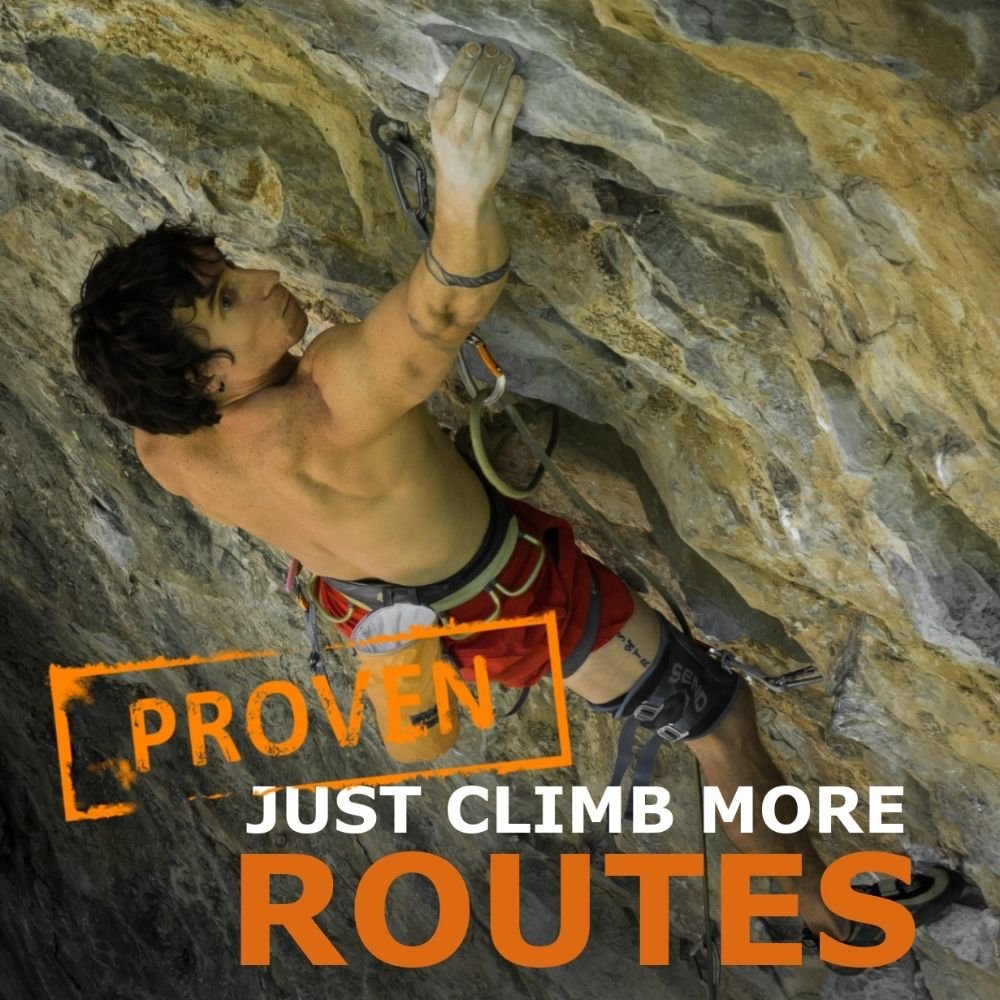



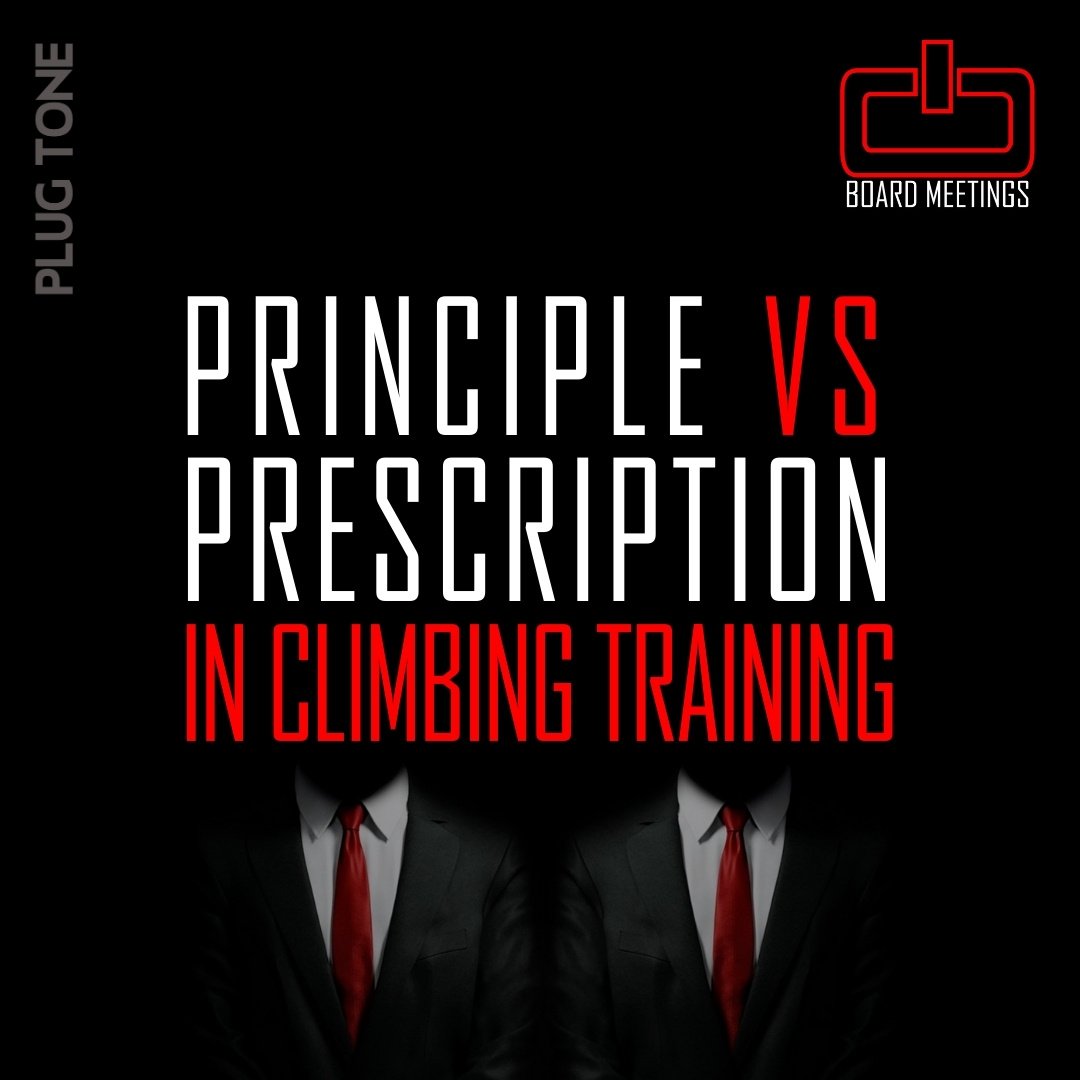



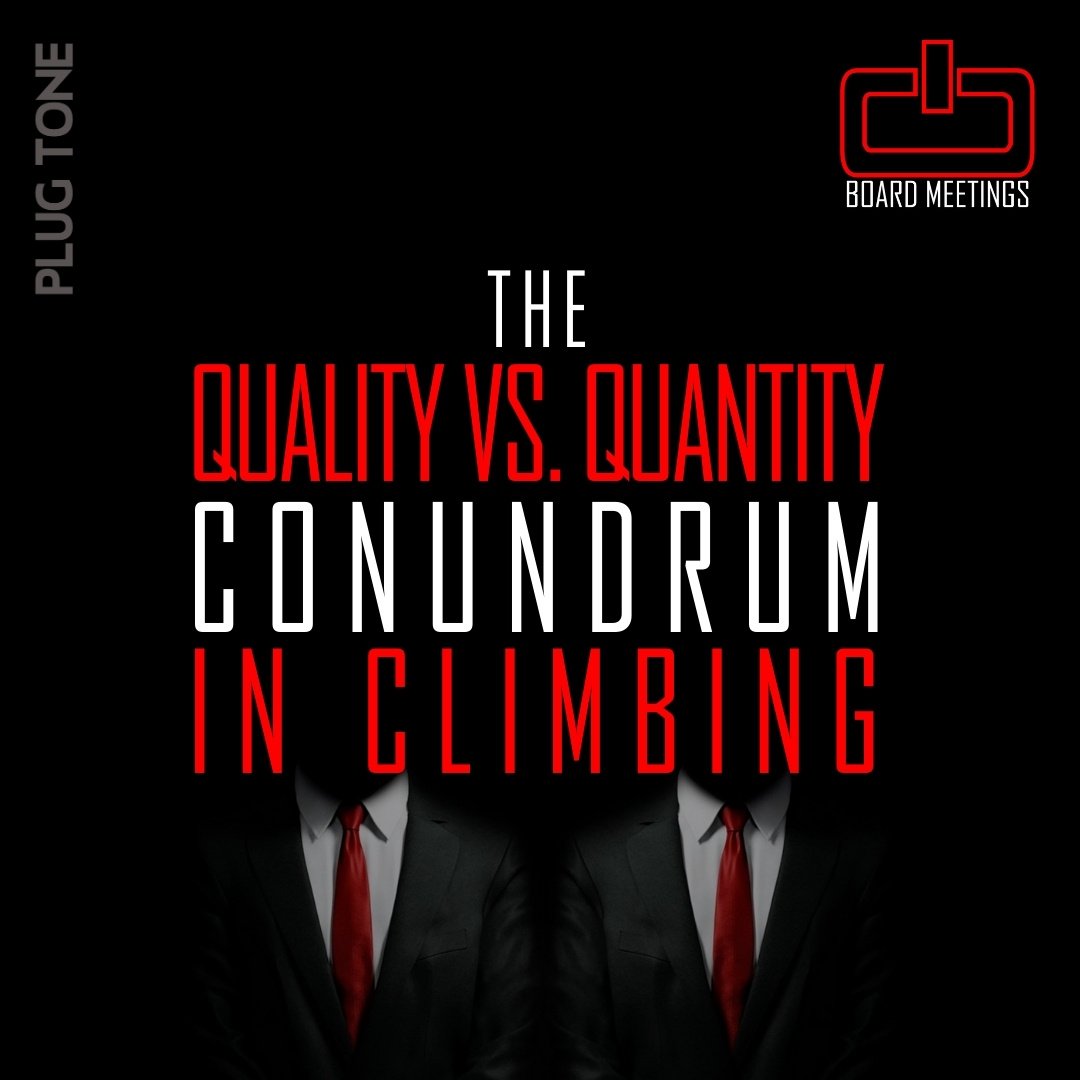
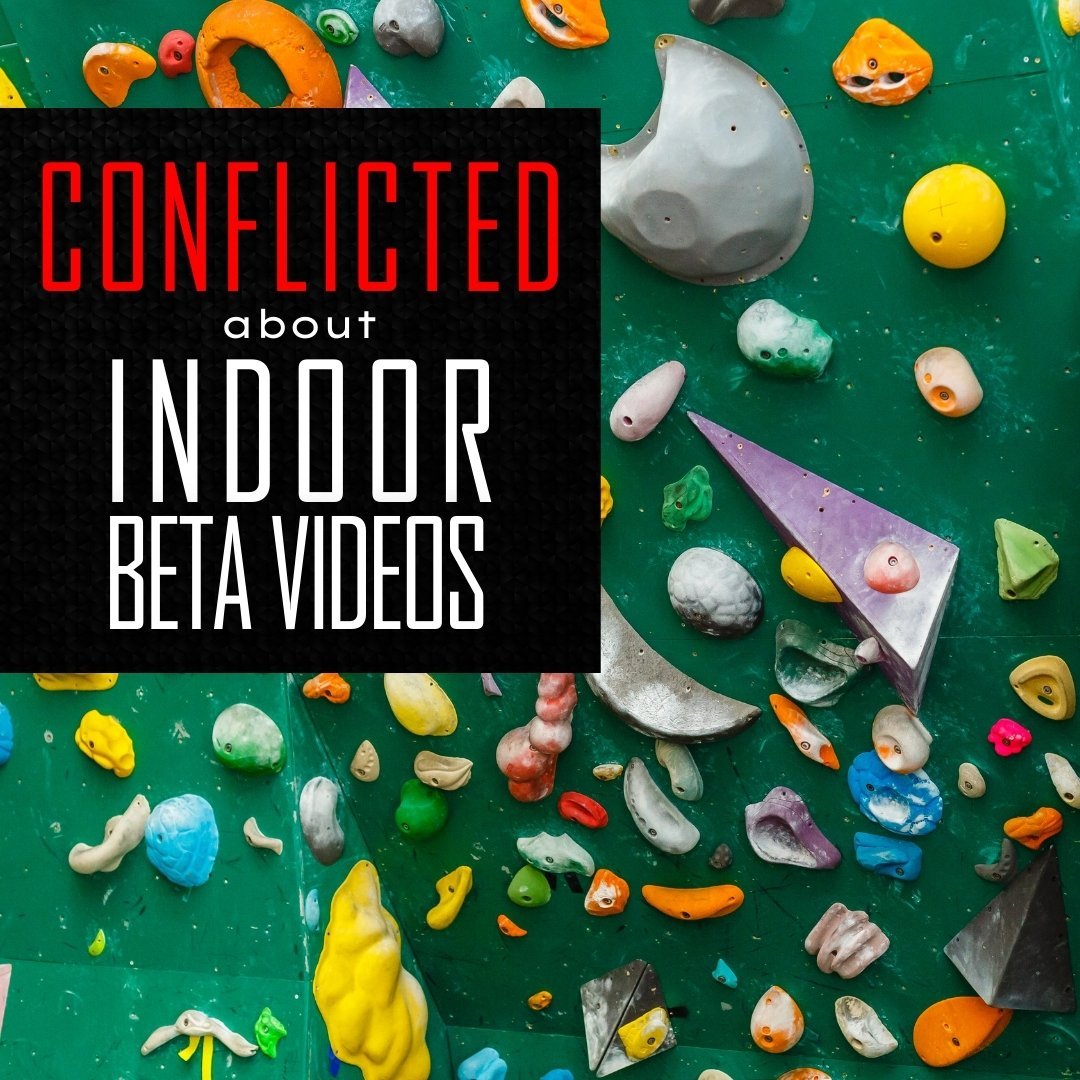
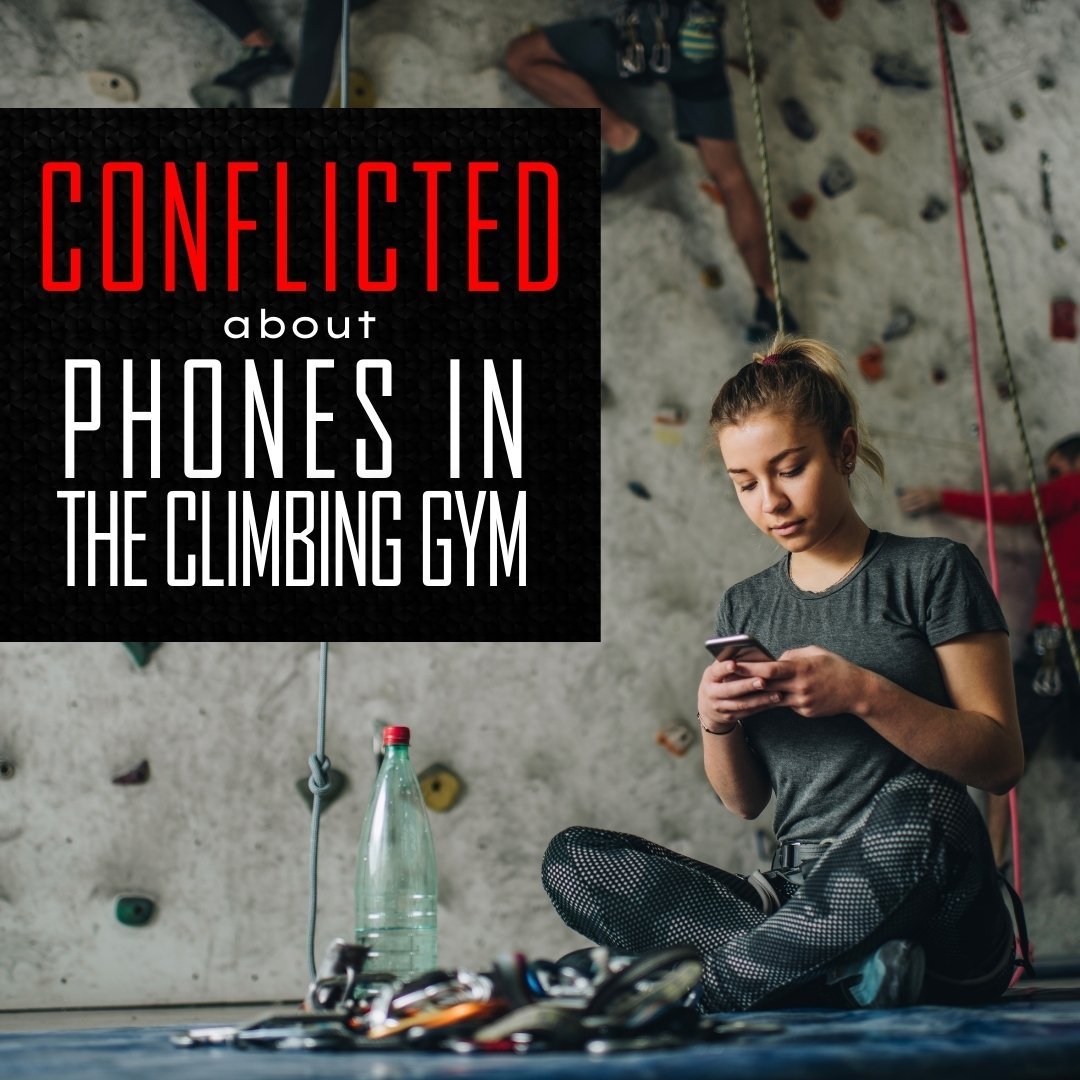
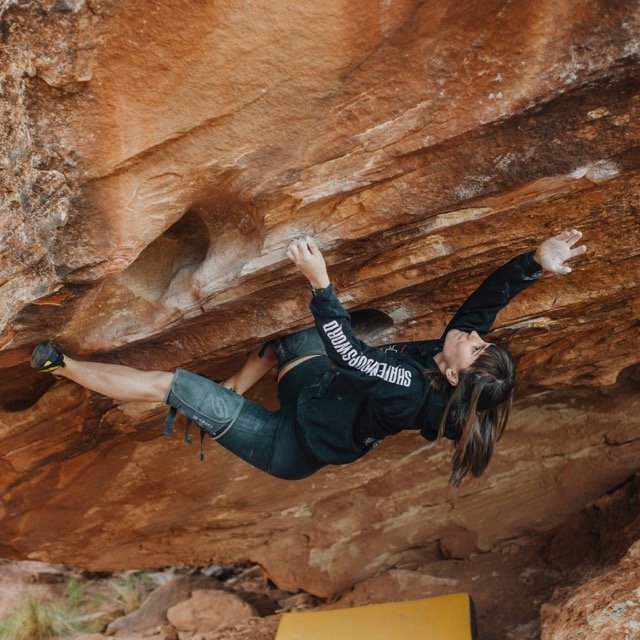

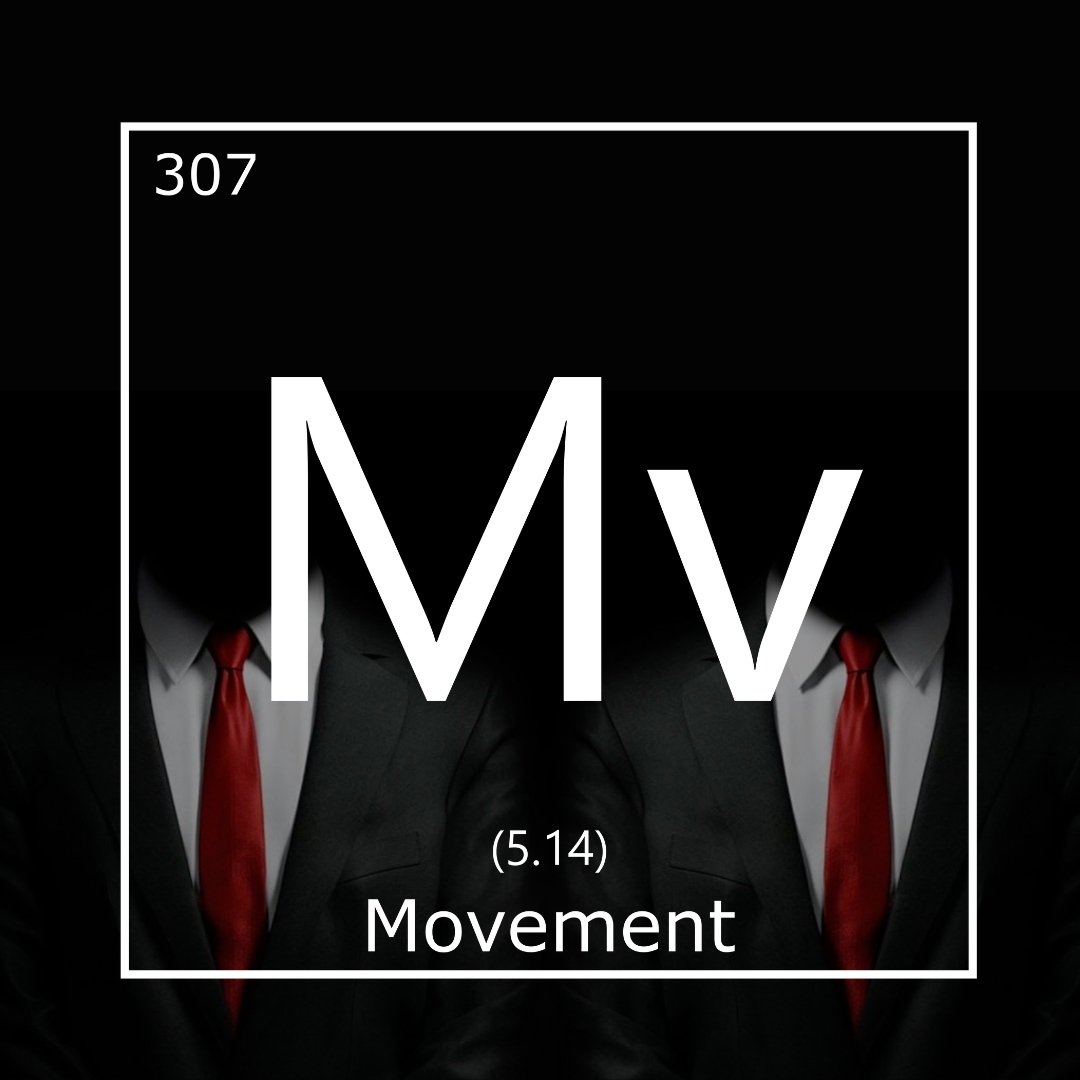
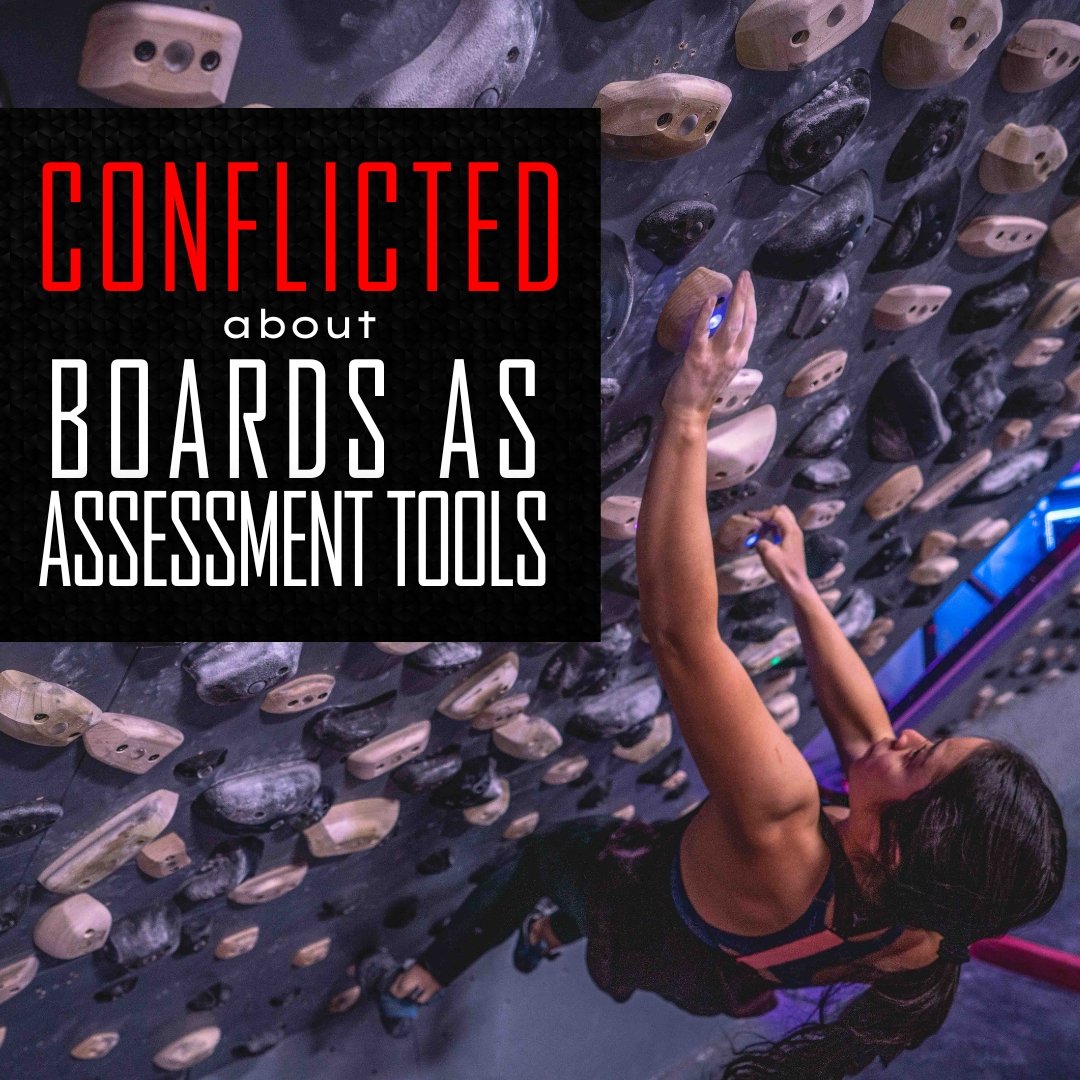
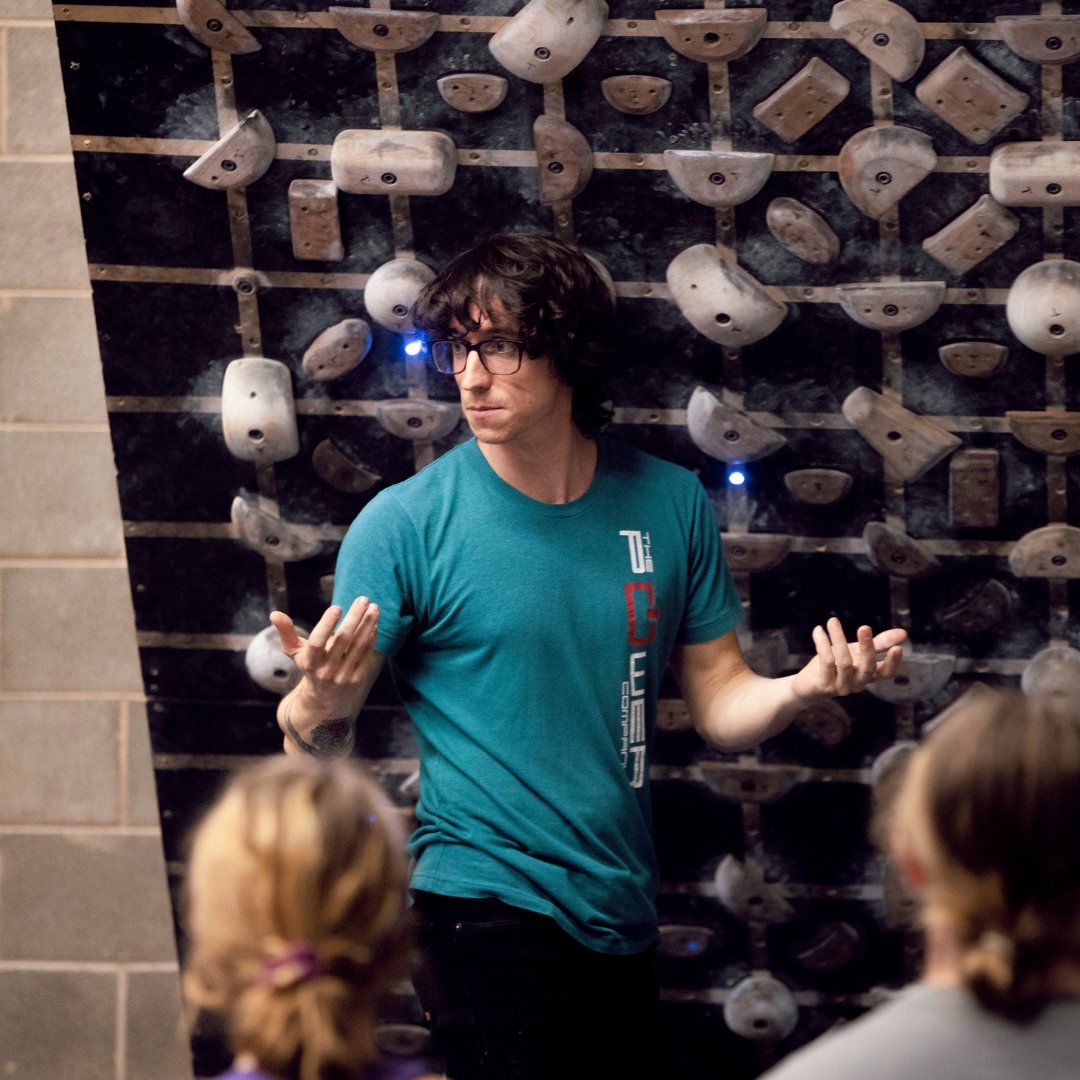
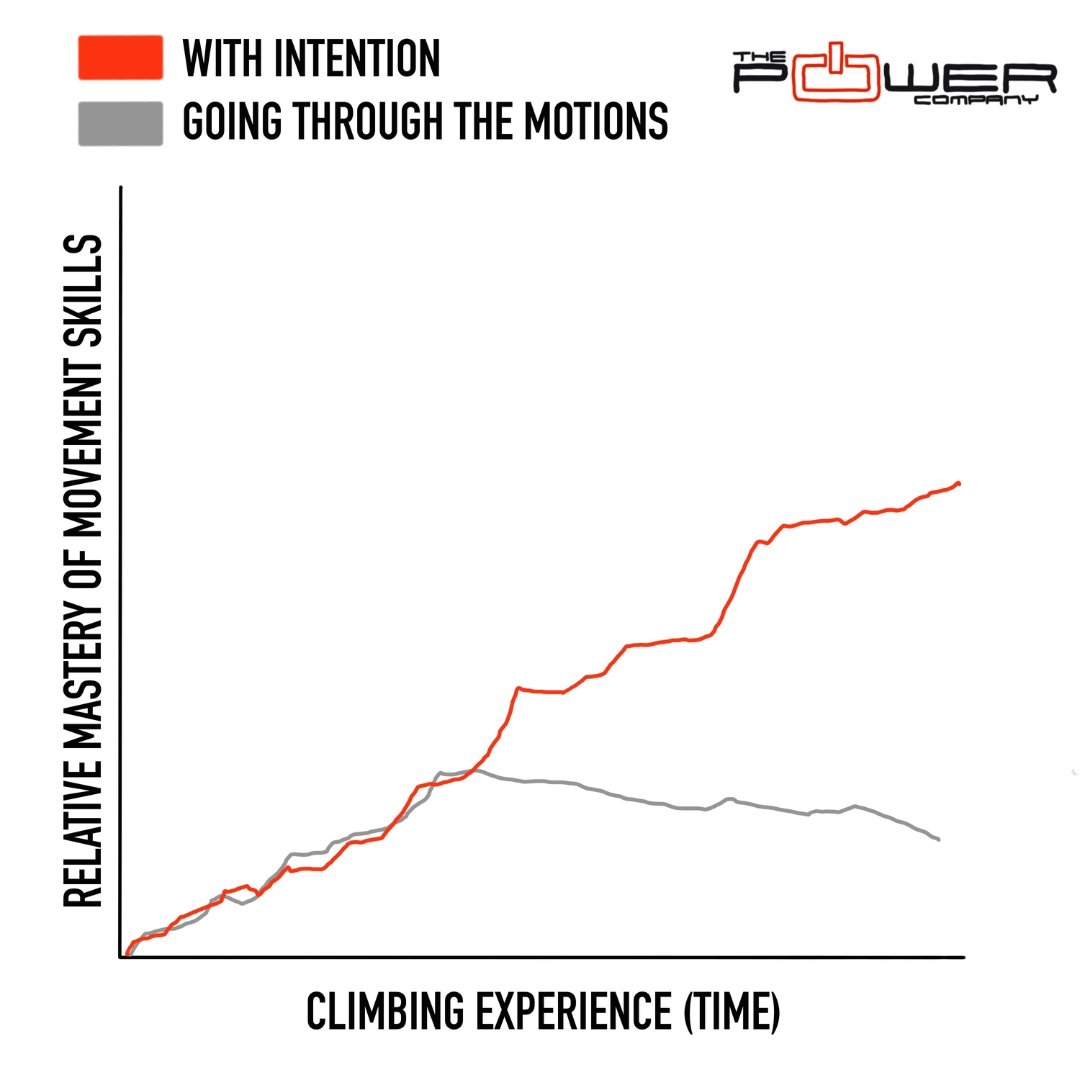




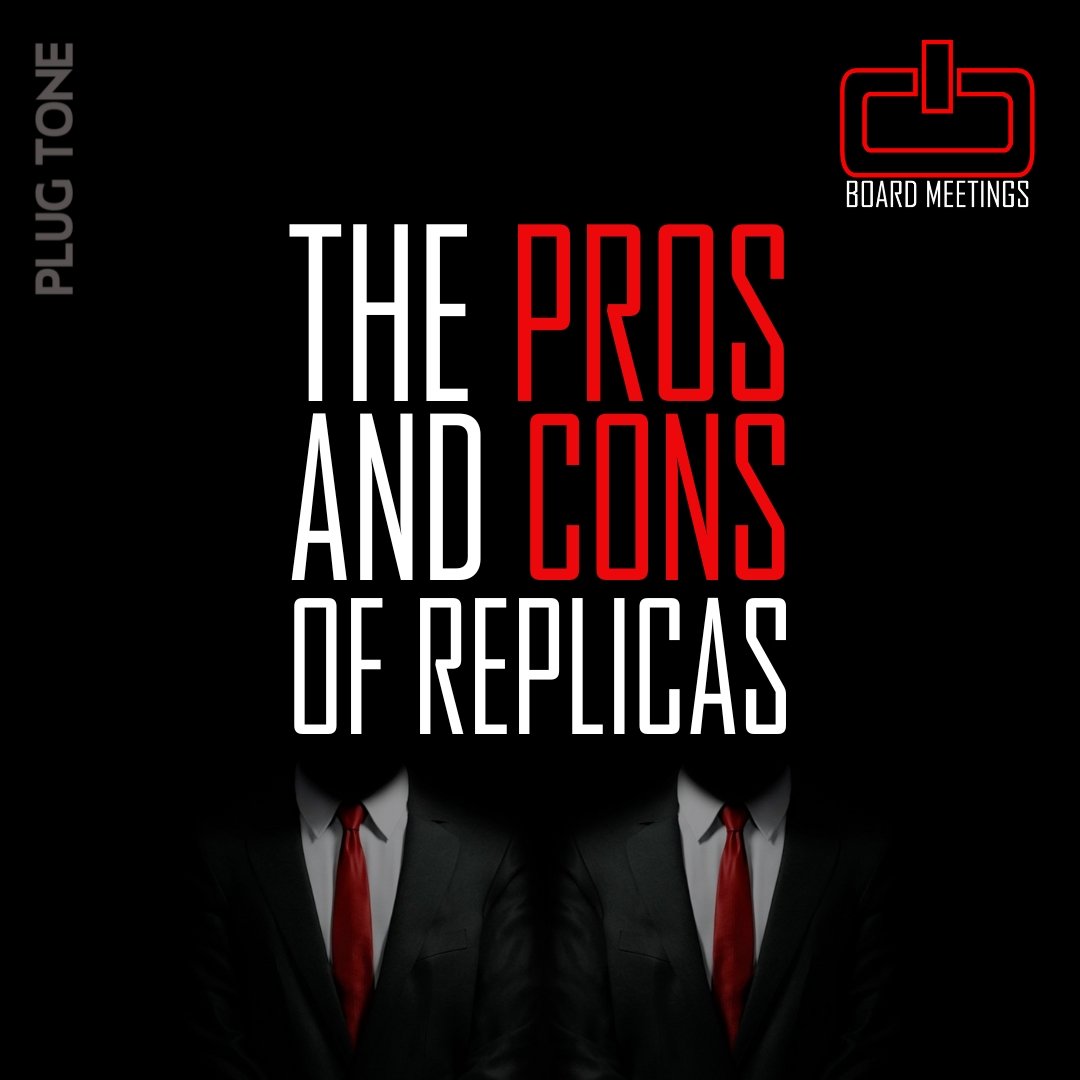


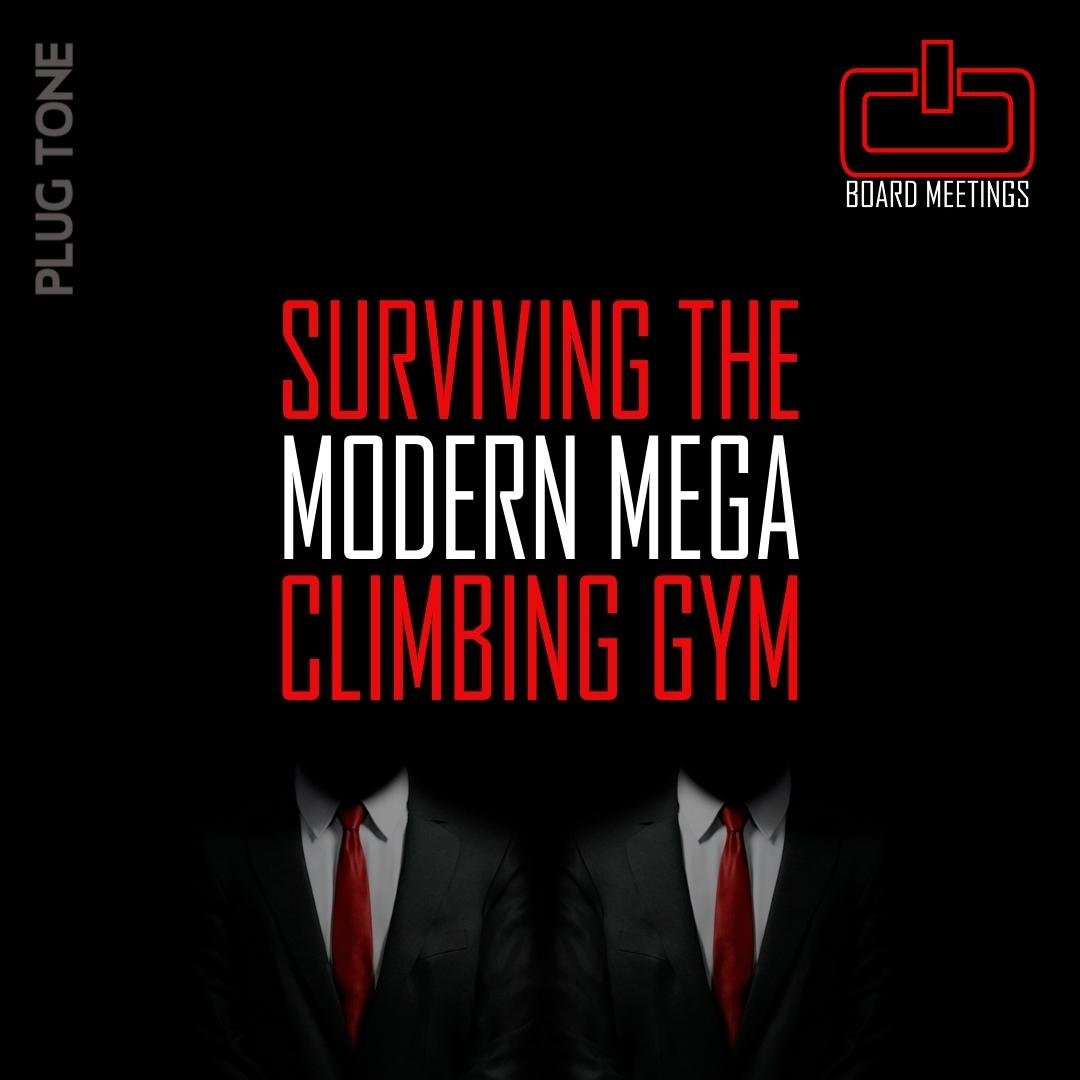


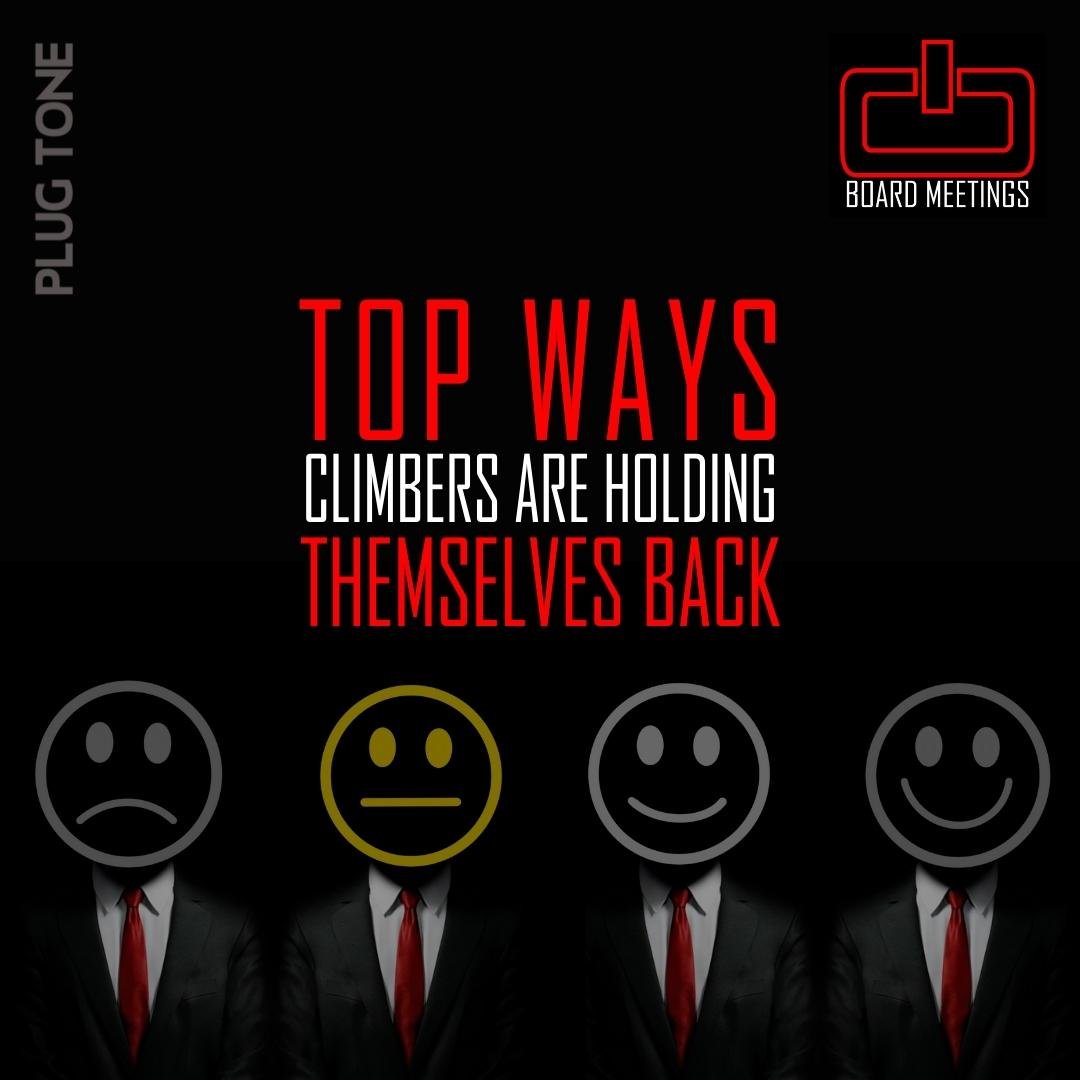








We are rarely in a position to take advantage of what we're physically capable of if we can’t shift our mindsets.